info@dentallifeline.com
Blog
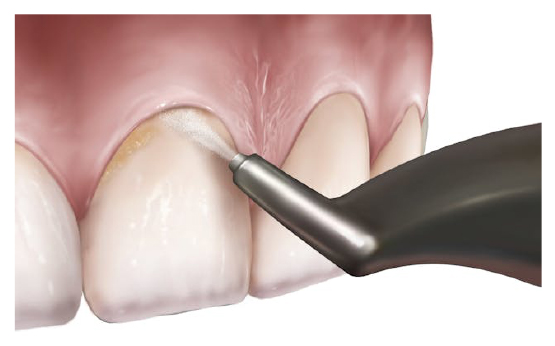 21 May 2025
21 May 2025
Sparkling Smiles Without the Scraping: Why Dental Air Polishing Might Be Your New Best Friend
We all crave that fresh, clean feeling after a dental visit, right? For years, the trusty ultrasonic scaler has been our go-to for banishing plaque and tartar. But have you heard about a gentler, often more effective way to achieve that dazzling smile? Enter dental air polishing.
This innovative procedure is gaining popularity, and for good reason. Instead of the familiar scraping and vibration, air polishing uses a controlled stream of air, water, and a fine powder to gently yet powerfully remove biofilm, stains, and early calculus buildup. Sounds intriguing, doesn’t it? Let’s dive into why air polishing might just be a superior option compared to conventional scaling in many situations.
The Mechanics: Air Polishing vs. Scaling
Think of it this way:
- Conventional Scaling: Imagine a tiny chisel gently chipping away at the deposits on your teeth. Ultrasonic scalers add vibrations to this process to help dislodge debris. While effective, this mechanical action can sometimes feel a bit… well, scrapey.
- Air Polishing: Now picture a mini sandblaster, but for your teeth! A fine powder, often sodium bicarbonate, glycine, or erythritol, is propelled by a stream of compressed air and water. This combination gently and effectively buffs away surface stains, plaque, and soft calculus.
The Perks of Polishing: Why Patients (and Dentists!) are Loving Air Polishing
Here’s where air polishing truly shines:
- Gentler on Teeth and Gums: For patients with sensitive teeth or gums, air polishing can be a game-changer. The non-contact nature of the procedure minimizes discomfort and reduces the risk of tissue trauma. Say goodbye to that post-cleaning sensitivity!
- Superior Stain Removal: Air polishing is incredibly effective at removing extrinsic stains caused by coffee, tea, red wine, and smoking. The fine powder can reach into grooves and pits that traditional scalers might struggle with, leaving your teeth noticeably brighter
.
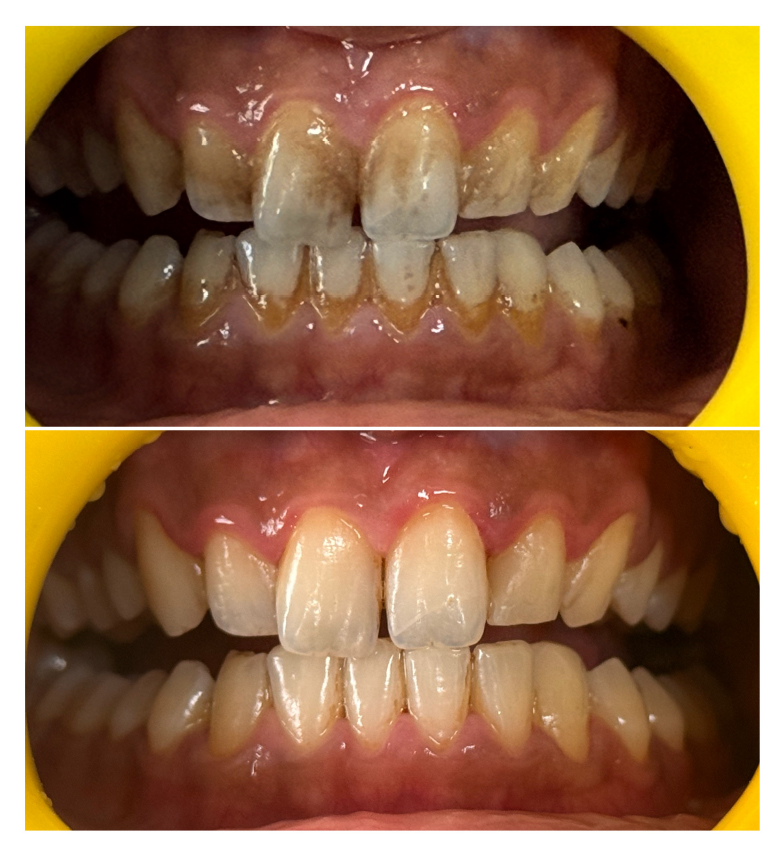
- Enhanced Access: The fine nozzle of the air polishing device can navigate tricky areas in the mouth, including deep pockets around teeth and around orthodontic brackets or dental implants. This allows for more thorough cleaning in hard-to-reach spots.
- Faster Procedure: In many cases, air polishing can be a quicker procedure than traditional scaling, especially when focusing on stain removal and biofilm management. This means less time in the dental chair – a win for everyone!
- Improved Patient Comfort: Many patients report a more comfortable and less invasive experience with air polishing compared to the vibrations and pressure associated with scaling.
- Ideal for Biofilm Management: Air polishing is particularly effective at disrupting and removing the sticky biofilm that harbors bacteria and contributes to gum disease and cavities.
Where Scaling Still Holds Its Ground
It’s important to note that while air polishing offers numerous advantages, conventional scaling still plays a crucial role in maintaining oral health. Scaling is often necessary for:
- Removing Hard, Stubborn Calculus: While air polishing can remove early calculus, firmly attached, heavy tartar buildup often requires the mechanical action of scaling for effective removal.
- Subgingival Scaling: For cleaning below the gum line where hard calculus deposits are common, scaling remains the gold standard.
The Takeaway: A Powerful Partnership
The truth is, dental air polishing isn’t necessarily about replacing conventional scaling entirely. Instead, it often acts as a powerful complementary procedure. Dentists strategically use air polishing for stain removal, biofilm management, and gentle cleaning, while reserving scaling for the removal of heavy calculus deposits.
Ultimately, the best approach for your dental cleaning will depend on your individual needs and oral health. Don’t hesitate to discuss the benefits of air polishing.You might just discover a gentler, more effective path to a brighter, healthier smile!
Celebrating Mom with a Smile: Mother’s Day and the Importance of Dental Care
Mother’s Day is more than just flowers and breakfast in bed—it’s a time to show appreciation for the women who nurture, support, and care for us every single day. One of the best ways to honour mom this year? Help her prioritise her health, starting with her smile.
Why Dental Health Matters for Moms?
Mothers often put their families first, sometimes at the expense of their own well-being. Dental care, in particular, is something many moms may neglect due to busy schedules or other priorities. However, maintaining good oral health is crucial —not just for a sparkling smile, but for overall wellness. Gum disease, for example, has been linked to heart disease, diabetes, and other systemic conditions.
Simple Dental Tips for Busy Moms…
Schedule Regular Dental Visits: Encourage mom to book a cleaning or dental check-up. It’s the kind of self-care that pays off in the long run.
Upgrade Her Tools: A new electric toothbrush or water flosser makes daily oral hygiene easier and more effective.
Healthy Snacking: Replace sugary treats with smile-friendly options like cheese, nuts, and crunchy fruits and veggies.
Hydration: Drinking water throughout the day not only benefits overall health but also helps wash away bacteria and acids in the mouth.
A Unique Mother’s Day Gift Idea
Instead of the usual bouquet, why not treat mom to a dental spa day? Services like whitening treatments, professional cleanings, or even relaxing amenities during appointments. It’s a practical and pampering gift she might not expect—but will definitely appreciate.
Teaching Healthy Habits to the Next Generation
Moms are role models, especially when it comes to health habits. When children see their mothers prioritising dental care, they’re more likely to adopt those habits themselves. So this Mother’s Day, celebrating mom’s smile helps ensure the whole family keeps smiling, too.
 09 Apr 2025
09 Apr 2025
Oral Cancer Awareness Month: Raising Awareness and Saving Lives
Every year in April, the world comes together to observe Oral Cancer Awareness Month, a time dedicated to educating the public about the signs, symptoms, and prevention of oral cancer. While it may not receive as much attention as some other cancers, oral cancer is a serious and often deadly disease that affects thousands of people worldwide. The goal of this month-long campaign is to raise awareness, promote early detection, and encourage healthy habits that can help reduce the risk of developing oral cancer.
The Importance of Oral Cancer Awareness
Oral cancer refers to cancers that develop in the mouth, throat, lips, tongue, cheeks, and floor of the mouth. According to the American Cancer Society, over 54,000 people in the U.S. are diagnosed with oral cancer every year, and nearly 11,000 die from it. Despite these alarming statistics, oral cancer remains underrecognized, and many people don’t fully understand the risks or the early signs of the disease.
Oral cancer is often diagnosed in later stages when it becomes harder to treat. However, when caught early, the survival rate for oral cancer can increase significantly. That’s why Oral Cancer Awareness Month is so crucial—it serves as a reminder to the public and healthcare providers to promote early screening, self-exams, and regular dental checkups.
Risk Factors for Oral Cancer
While oral cancer can affect anyone, there are certain factors that can increase a person’s risk:
Tobacco Use: Smoking cigarettes, cigars, and using smokeless tobacco products are among the top risk factors for oral cancer. The chemicals in tobacco can damage the cells in the mouth, leading to cancerous growths.
Heavy Alcohol Consumption: Drinking large amounts of alcohol, particularly in combination with tobacco use, increases the likelihood of developing oral cancer.
HPV Infection: The human papillomavirus (HPV), particularly HPV-16, is a growing cause of oral cancers, especially in younger people. HPV-related oral cancers are often found at the base of the tongue and the tonsils.
Sun Exposure: Excessive sun exposure can lead to lip cancer, especially for those who spend a lot of time outdoors without lip protection
Age: Oral cancer is more common in people over the age of 40, with the incidence rising with age.
Poor Diet: A lack of fruits and vegetables in the diet can contribute to the development of oral cancer, as these foods provide essential nutrients and antioxidants that help protect the body from cancer.
Early Signs and Symptoms
The key to increasing the survival rate for oral cancer is early detection. Knowing what to look for is critical, as some symptoms might seem subtle or go unnoticed. Common signs of oral cancer include:
- Persistent mouth sores or ulcers that don’t heal
- Unexplained pain or tenderness in the mouth, throat, or neck
- White or red patches in the mouth or on the lips
- Difficulty swallowing or chewing
- Numbness or pain in the mouth or tongue
- A lump or thickening in the cheek or neck
- A change in the voice or hoarseness
- Sudden weight loss
If any of these symptoms persist for more than two weeks, it is essential to consult a healthcare professional for a thorough examination and potential biopsy.
How to Prevent Oral Cancer
While not all cases of oral cancer can be prevented, there are several steps you can take to reduce your risk:
Avoid Tobacco Products: Quitting smoking or using smokeless tobacco products is one of the best ways to reduce your risk of oral cancer.
Limit Alcohol Consumption: Cutting back on alcohol or avoiding it altogether can lower the chances of developing oral cancer.
Practice Safe Sun Exposure: Use lip balm with SPF to protect your lips from harmful UV rays, especially if you spend a lot of time in the sun.
Maintain Good Oral Hygiene: Brush and floss regularly to keep your mouth healthy. Regular dental checkups also allow your dentist to look for any potential signs of oral cancer.
Get Vaccinated: The HPV vaccine can protect against the strains of HPV that are linked to oral cancer, particularly for young people before they become sexually active.
Eat a Healthy Diet:A diet rich in fruits, vegetables, and whole grains provides the nutrients and antioxidants your body needs to fight cancer.
Regular Screenings: Early detection is key. Make sure to schedule regular dental checkups, where your dentist can perform oral cancer screenings to look for any unusual changes in your mouth.
The Role of Healthcare Providers
During Oral Cancer Awareness Month, healthcare professionals are encouraged to educate patients about the importance of self-exams and regular checkups. Dentists play a pivotal role in early detection, as they are often the first to spot signs of oral cancer. If a patient is found to have an abnormal growth or lesion, a referral for further testing and biopsy can help catch the disease early, which significantly improves the chances of successful treatment.
Conclusion
Oral Cancer Awareness Month serves as a crucial reminder to protect your oral health and recognise the signs of oral cancer. With increased awareness, better prevention strategies, and early detection, we can reduce the number of people affected by this serious disease. By spreading the word, getting regular screenings, and living healthier lifestyles, we can work together to prevent oral cancer and save lives.
Let’s take action this April—raise awareness, encourage regular checkups, and help protect ourselves and our loved ones from oral cancer.
World Oral Health Day: A Celebration of Healthy Smiles
Every year, on March 20th, people across the globe come together to celebrate World Oral Health Day (WOHD). This day serves as a reminder to prioritise oral health, not just for a beautiful smile, but for overall well-being. Oral health plays a pivotal role in a person’s general health, quality of life, and even self-confidence. By spreading awareness and promoting better dental habits, World Oral Health Day encourages individuals to take charge of their oral hygiene and emphasises the importance of prevention, education, and regular dental check-ups.
Why World Oral Health Day Matters?
Oral health is more than just the absence of cavities or gum disease; it’s about maintaining a healthy mouth, teeth, and gums, which significantly impacts your ability to eat, speak, and socialise without discomfort or pain. Yet, many people overlook the importance of oral hygiene, leading to problems like tooth decay, gum disease, and even systemic issues like heart disease, diabetes, and stroke. According to the World Health Organisation (WHO), oral diseases affect nearly 3.5 billion people globally, making it one of the most widespread health conditions in the world.
By celebrating World Oral Health Day, we shine a spotlight on the need for education and access to oral health care. The goal is to inspire positive changes in daily habits, raise awareness about common oral diseases, and encourage regular visits to the dentist.
The Theme of World Oral Health Day 2025: “A HAPPY MOUTH IS… A HAPPY MIND”

The focus will be on spotlighting how a happy mouth contributes to a happy mind. The campaign will address another vital topic: the connection between oral health and mental well-being.
Simple Steps for Better Oral Health
Taking care of your teeth and gums is simpler than many people realize. Incorporating these simple habits into your daily routine can have a significant impact on your oral health:
1. Brush Twice a Day: Brushing your teeth for two minutes, twice a day, with fluoride toothpaste is one of the most effective ways to remove plaque and prevent tooth decay and gum disease.
2. Floss Daily: Flossing helps remove food particles and plaque between your teeth, areas that a toothbrush can’t reach.
3. Visit the Dentist Regularly: Regular dental check-ups (at least twice a year) are crucial for detecting problems early and maintaining optimal oral health. Dentists can identify issues like cavities, gum disease, and even oral cancers in their earliest stages.
4. Limit Sugary Foods and Drinks: A diet high in sugar can lead to cavities and tooth decay. Limiting sugary snacks, drinks, and processed foods can significantly reduce your risk.
5. Avoid Tobacco Products: Smoking and chewing tobacco are harmful to your oral health, increasing your risk for gum disease, tooth loss, and oral cancer.
6. Drink Water: Drinking water, especially fluoridated water, helps wash away food particles and bacteria, reducing your risk of cavities and gum disease.
7. Wear Mouth-guards for Sports: If you play contact sports, wearing a mouthguard can help protect your teeth and gums from injury.
The Global Impact of Oral Health
Although oral diseases are preventable, they remain a major public health issue, particularly in low- and middle-income countries. Poor access to oral health care, a lack of education on proper oral hygiene practices, and limited resources contribute to high rates of dental problems. The World Health Organisation and organisations like the FDI World Dental Federation work to address these disparities, advocating for policies and initiatives that promote access to quality oral health care for all.
On World Oral Health Day, it is not only about encouraging individuals to look after their mouths, but also about promoting policies that ensure everyone can access the oral health care they need. Efforts are being made worldwide to provide education, improve health infrastructure, and support those who may face barriers to care.
How You Can Participate in World Oral Health Day
There are several ways you can participate in World Oral Health Day and contribute to the global movement for better oral health:
- Share Knowledge: Spread the word about the importance of oral hygiene. Whether through social media or talking with friends and family, sharing simple oral health tips can make a big difference.
- Attend Local Events: Many dental associations and clinics host events like free dental check-ups, educational seminars, and community outreach programs on World Oral Health Day. Check out what’s happening in your local area and get involved.
- Take the Pledge: Some organisations offer a pledge to adopt better oral health practices. By signing up, you’re committing to improving your oral health and setting a good example for others.
- Advocate for Change: If you are passionate about oral health, consider advocating for better access to dental care in your community or country. You can support policies and programs that aim to make oral care more accessible and affordable for everyone.
Conclusion
World Oral Health Day is a reminder that oral health is integral to overall health. By practicing good oral hygiene and spreading awareness, we can all contribute to creating a world where everyone has access to healthy smiles and the benefits that come with them. So, this March 20th, take the time to smile proudly and make a commitment to better oral health—not just for one day, but every day.
Your smile is worth it!
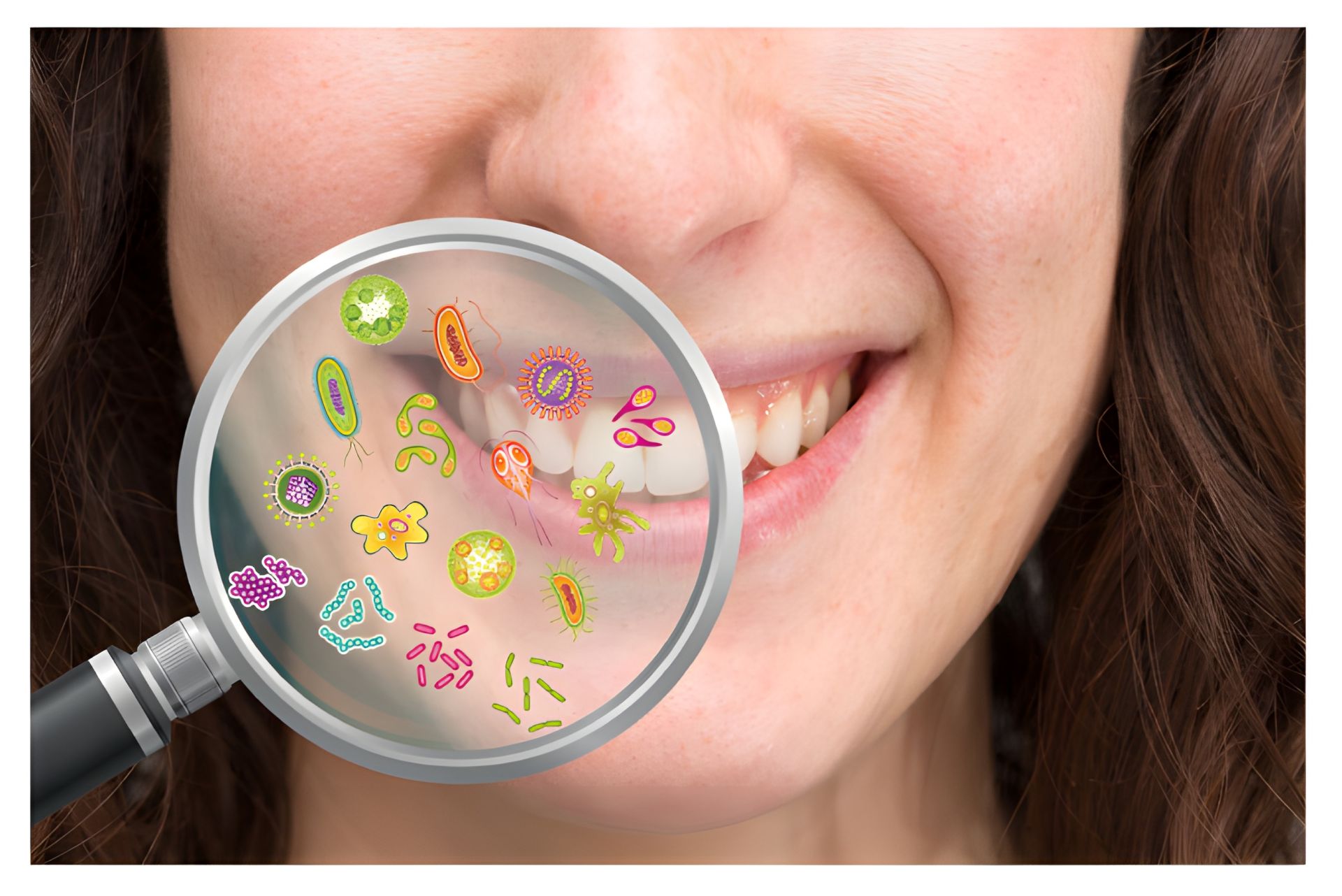 24 Feb 2025
24 Feb 2025
Diseases Related to Gums: A Comprehensive Guide
Gum diseases, also known as periodontal diseases, affect the tissues surrounding and supporting your teeth. These conditions range from mild irritation (gingivitis) to more severe infections (periodontitis) that can lead to tooth loss. In this blog, we will explore the types of gum diseases, their symptoms, causes, diagnosis, management, prevention, prognosis, and possible complications.
Types of Gum Diseases
- Gingivitis: Gingivitis is the mildest form of gum disease. It is an inflammation of the gums that usually occurs due to poor oral hygiene. If not treated, gingivitis can progress to more serious gum diseases.
- Periodontitis: Periodontitis occurs when gingivitis is left untreated. It involves inflammation not only of the gums but also of the tissues and bone that support your teeth. It is a severe gum disease that can result in tooth loss if not treated.
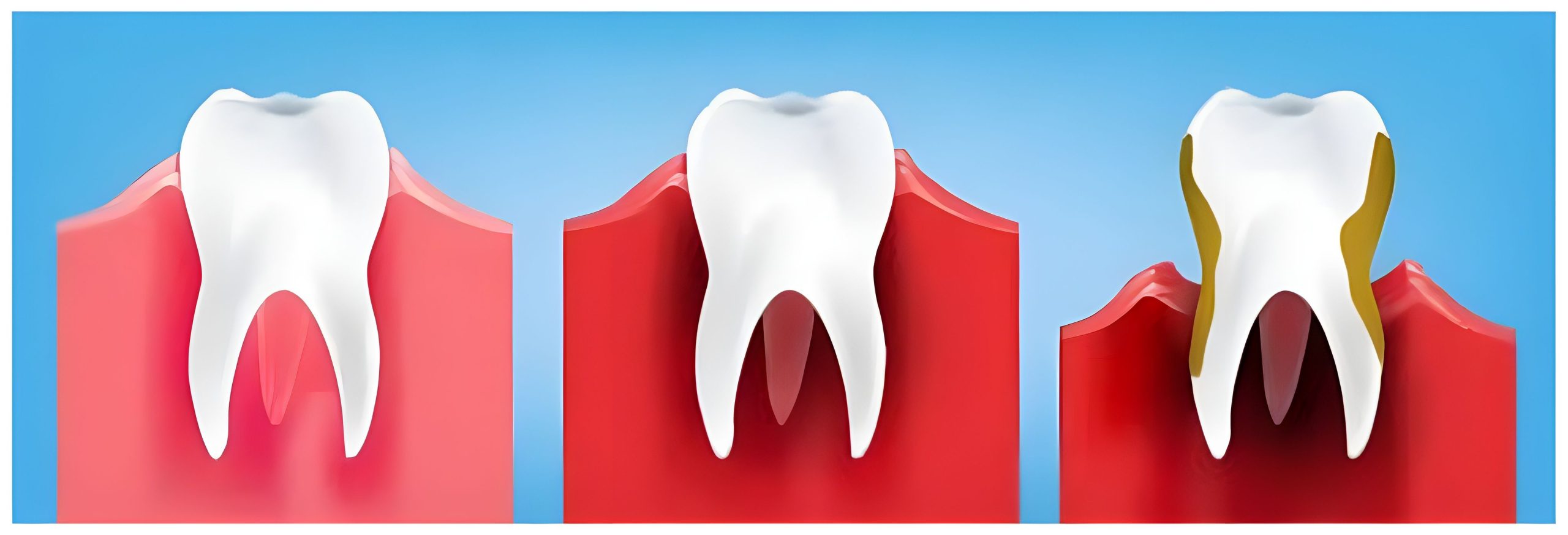
Symptoms of Gum Diseases
Gingivitis:
- Red, swollen, and tender gums
- Bleeding gums when brushing or flossing
- Bad breath
- Receding gums
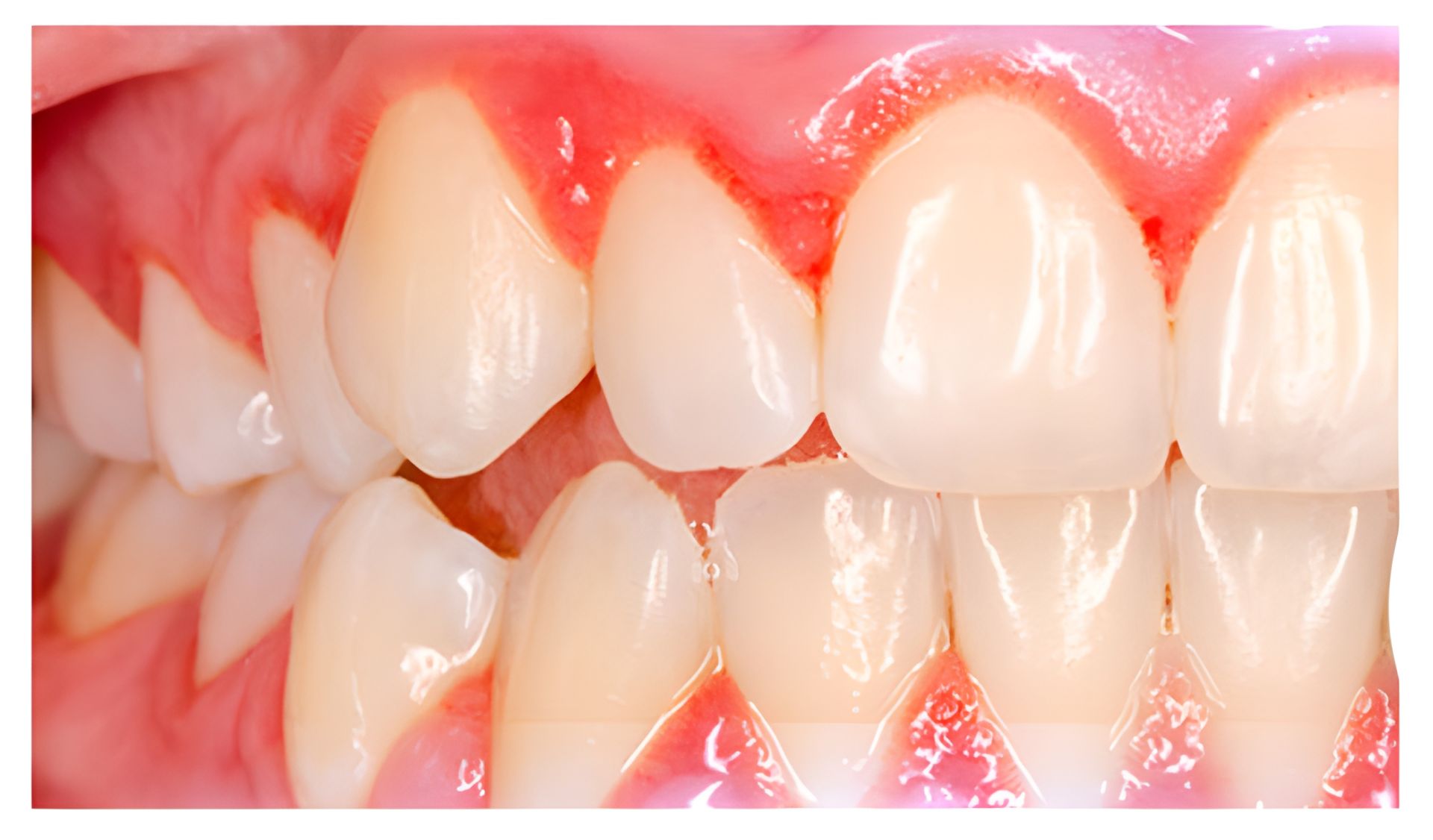
Periodontitis:
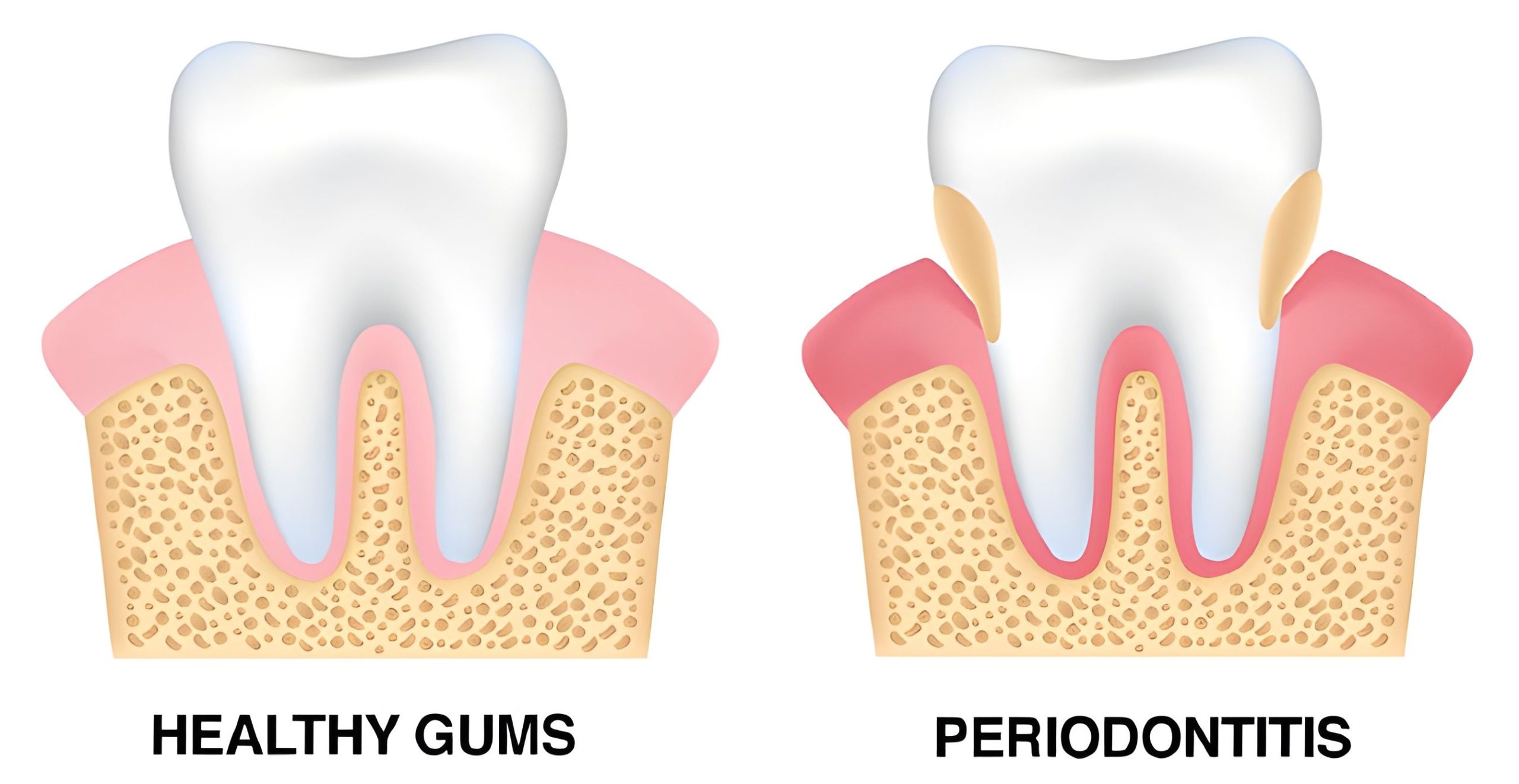
- Gingival symptoms (red, swollen gums)
- Gums that pull away from teeth, creating pockets
- Loose teeth or changes in bite alignment
- Pain while chewing
- Pus between teeth and gums
- Persistent bad breath or a bad taste in the mouth
Causes of Gum Diseases

- Poor Oral Hygiene: The main cause of gum disease is poor oral hygiene that encourages plaque to form on teeth, which can lead to gingivitis Plaque is a sticky, colourless film of bacteria that builds up on your teeth.
- Smoking or Chewing Tobacco: Tobacco use significantly increases the risk of gum disease by weakening the immune system and damaging gum tissue.
- Poor Nutrition: Lack of essential nutrients, especially vitamin C, can impair the body’s ability to fight infections and may contribute to gum disease.
- Certain Medical Conditions: Diseases like diabetes, HIV/AIDS, and cancer treatments may interfere with the body’s ability to fight infections, making the gums more susceptible to gum disease.
- Medications: Some medications can affect the health of your gums, leading to symptoms like dry mouth or abnormal gum growth.
- Hormonal Changes: Hormonal changes due to pregnancy, menstrual cycle, or menopause can make gums more sensitive, increasing the risk of gum disease.
- Genetics: A family history of gum disease can increase your likelihood of developing it.
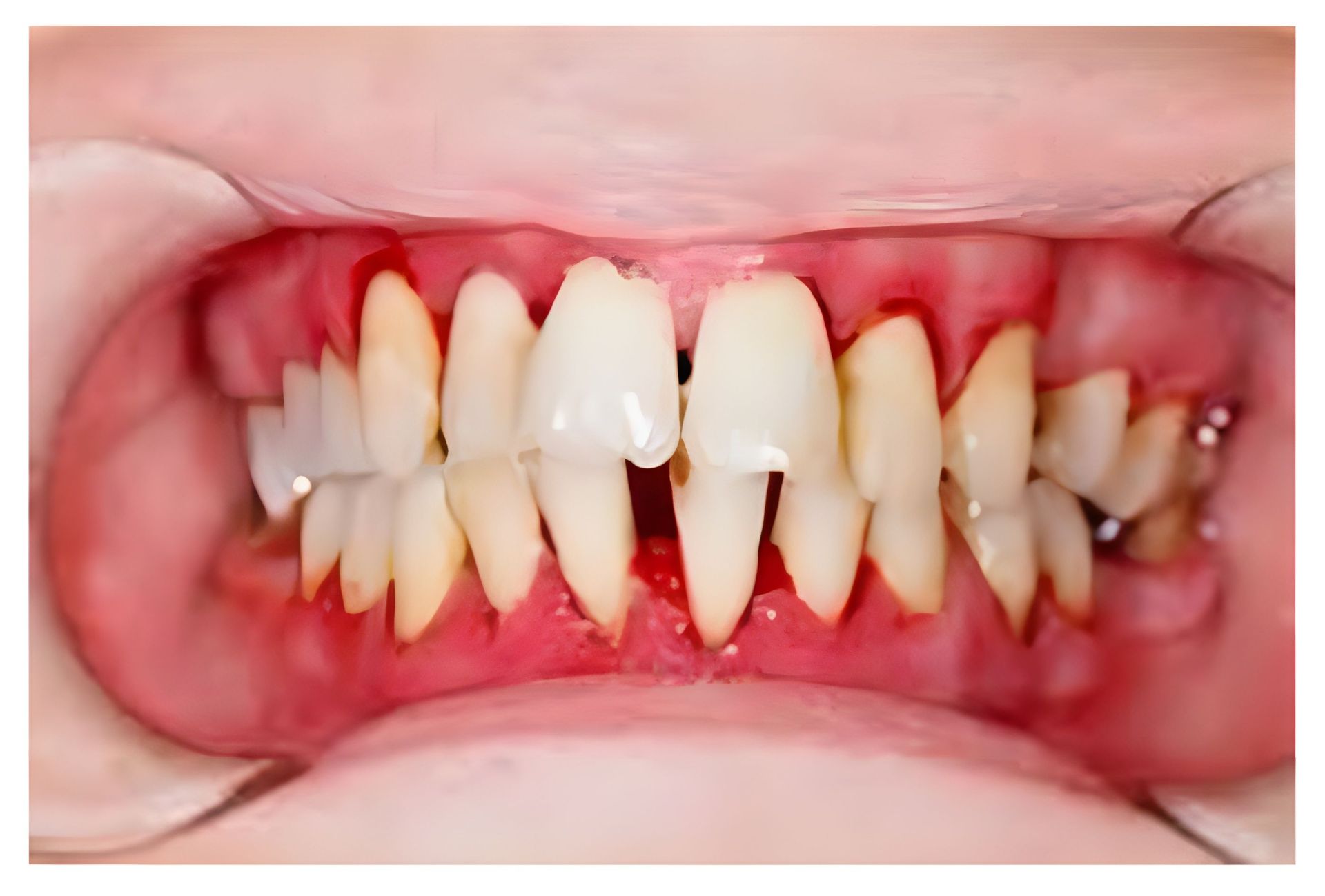
Diagnosis of Gum Diseases
Diagnosis of gum diseases typically involves a dental exam. Your dentist will check for signs of inflammation, pocket depth between teeth, gum recession, and tooth mobility. They may also:
- Take X-rays: To determine the extent of bone loss caused by periodontitis.
- Gingival Crevicular Fluid Test: In advanced cases, this fluid may be analysed to detect the presence of bacteria causing gum infection.
Management of Gum Diseases
For Gingivitis:
- Professional Cleaning: A dentist or dental hygienist will clean your teeth to remove plaque and tartar buildup.
- Improved Oral Hygiene: Regular brushing and flossing, as well as using mouthwash, can
help reverse gingivitis.
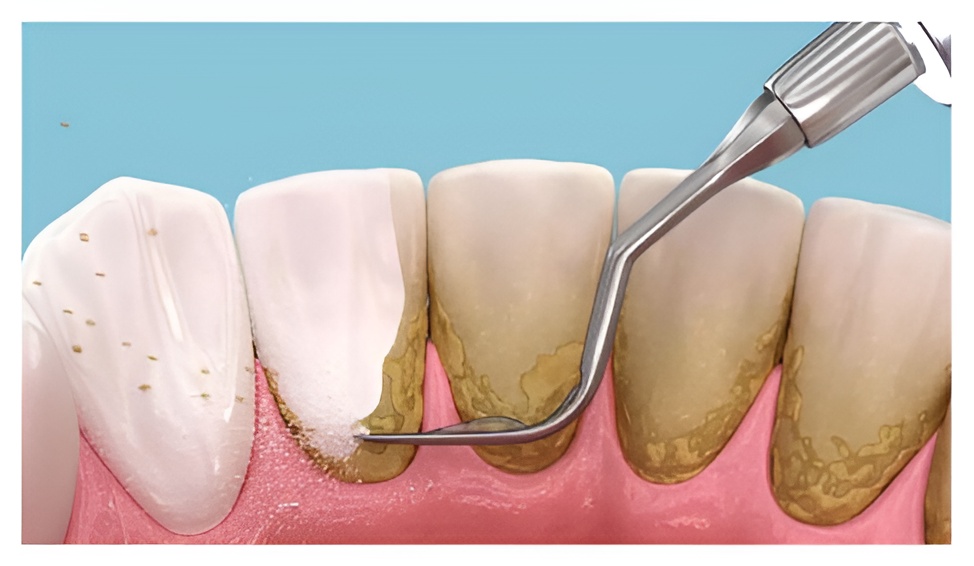

For Periodontitis:
- Scaling and Root Planing: This deep cleaning treatment removes plaque and tartar from below the gumline and smooths the root surfaces to help the gums reattach to the teeth.
- Antibiotics: Your dentist may prescribe topical or oral antibiotics to help control infection.
- Surgical Treatments: In severe cases, surgical procedures such as flap surgery or bone grafting may be necessary to restore lost bone or tissue.
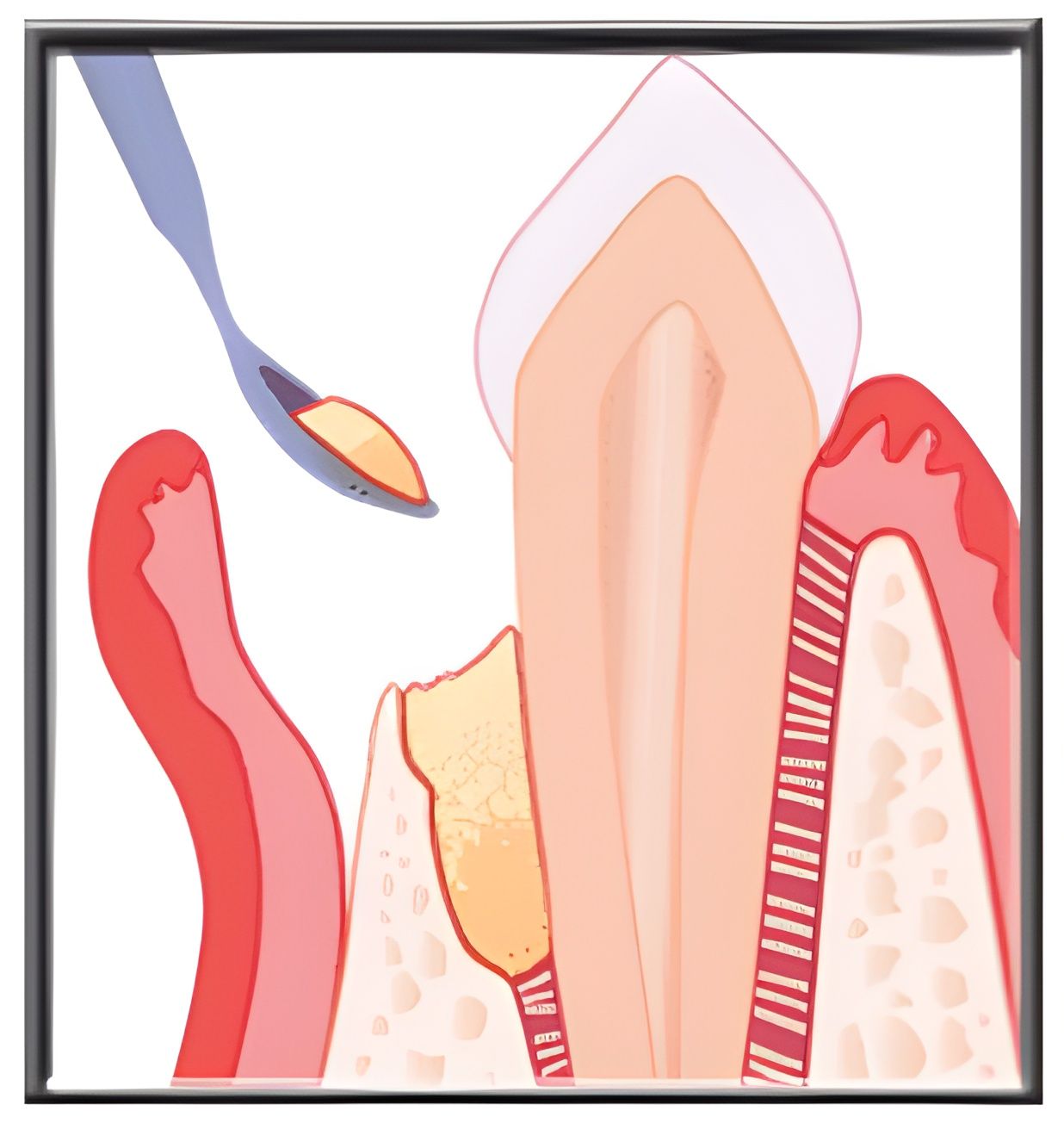
Prevention of Gum Diseases
- Regular Brushing: Brush your teeth at least twice a day with fluoride toothpaste to remove plaque and food particles.
- Flossing: Floss daily to clean between your teeth and below the gumline where a toothbrush can’t reach.
- Regular Dental Visits: Visit your dentist for routine checkups and cleanings, ideally every six months.
- Quit Smoking: Smoking is a major risk factor for gum disease, so quitting can significantly reduce your risk.
- Healthy Diet: Eat a balanced diet rich in vitamins and minerals, especially Vitamin C, to help your body fight off infections.
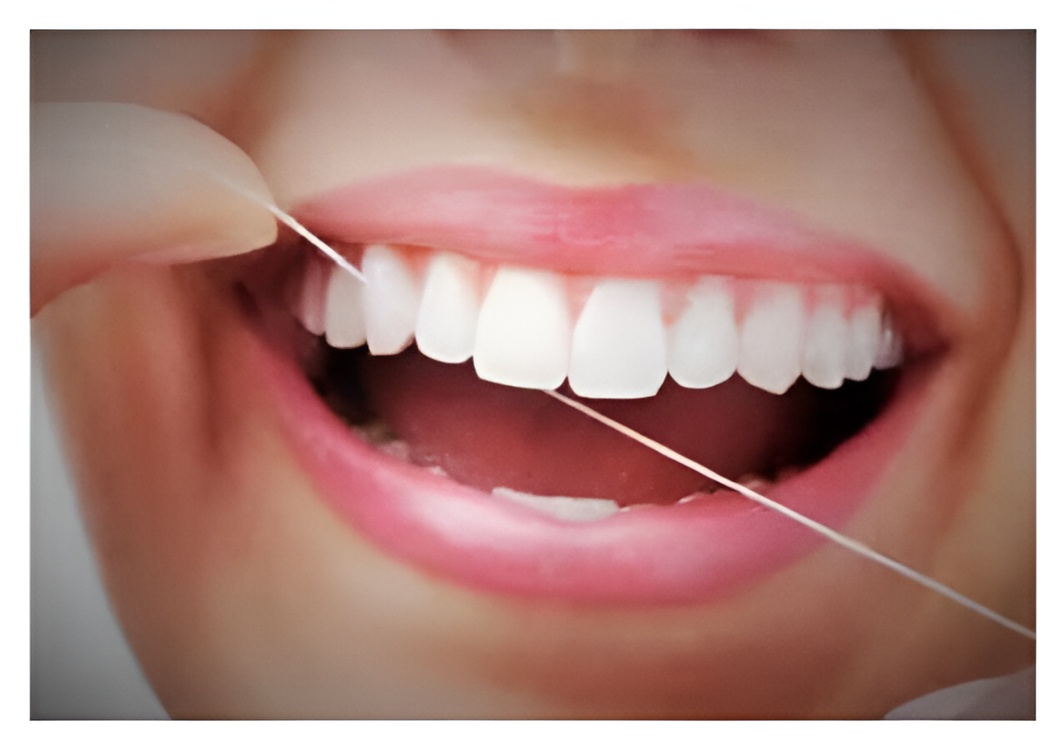

Prognosis of Gum Diseases
- The prognosis for gum diseases largely depends on early detection and intervention. Gingivitis, when treated early, can be reversed, while periodontitis can be managed but not completely cured. With appropriate treatment and diligent oral care, most individuals with gum disease can manage the condition and prevent further damage.
However, if left untreated, gum disease can lead to severe consequences like tooth loss, infections that spread to other parts of the body, and increased risk of heart disease and stroke.
Complications of Gum Diseases
- Tooth Loss: Severe periodontitis can lead to the destruction of the bone that supports your teeth, causing them to loosen and eventually fall out.
- Heart Disease: Gum disease has been linked to an increased risk of heart disease. Inflammation caused by gum disease may contribute to the development of cardiovascular conditions.
- Respiratory Infections: Bacteria from the gums can enter the respiratory system, leading to pneumonia and other lung infections.
- Diabetes Complications: Gum disease can make it more difficult to control blood sugar, making it more challenging for people with diabetes to manage their condition.
- Pregnancy Risks: Pregnant women with gum disease may face complications like preterm labor and low birth weight.
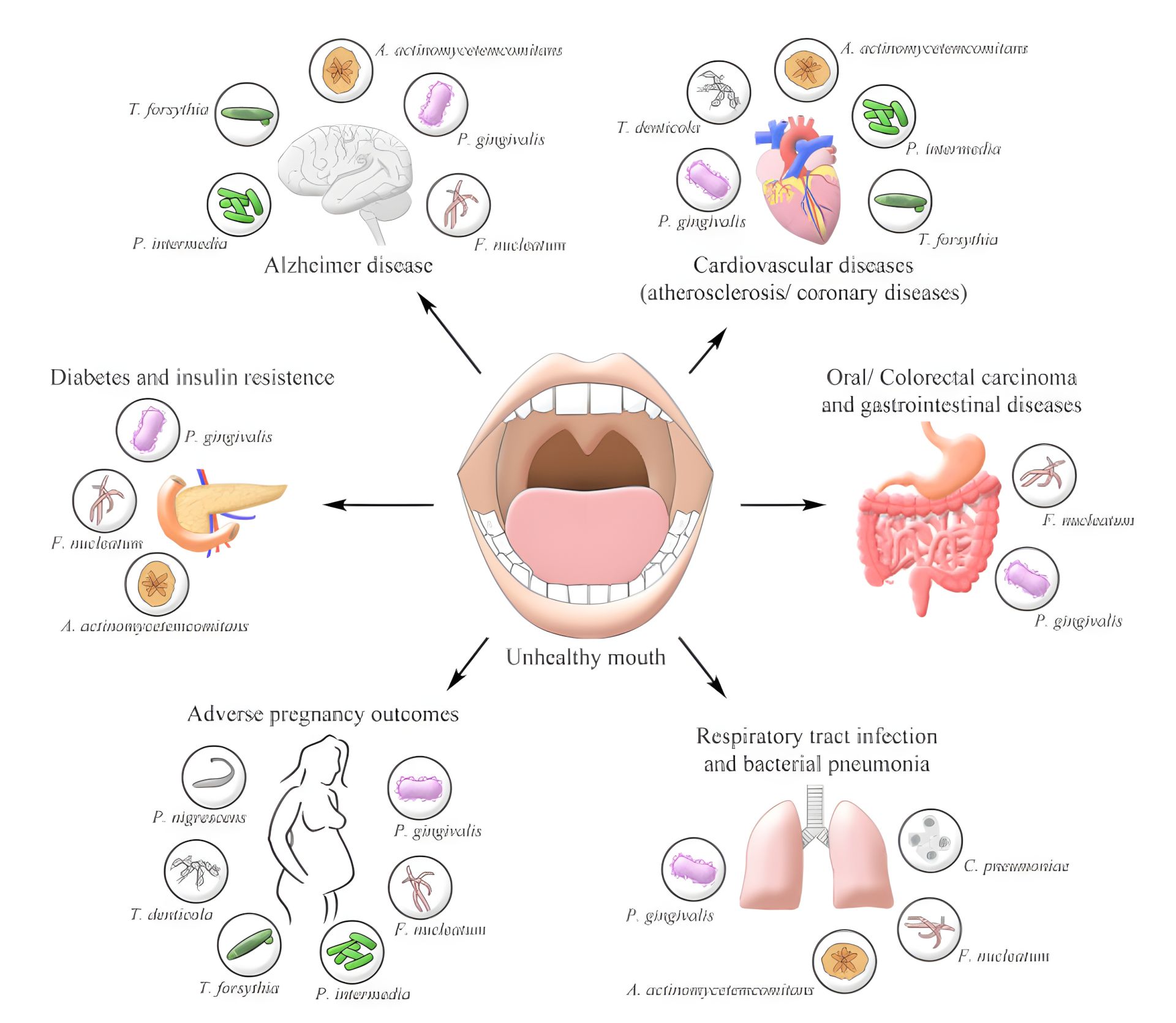
Conclusion
Gum diseases are serious conditions that can affect not only your oral health but your overall well-being. Recognising the symptoms early and practicing good oral hygiene can go a long way in preventing and managing gum disease. Regular dental visits and lifestyle changes, such as quitting smoking and eating a healthy diet, are crucial for maintaining healthy gums. By staying proactive about your dental care, you can ensure that your gums remain healthy for years to come.
Remember, a healthy mouth leads to a healthy body!
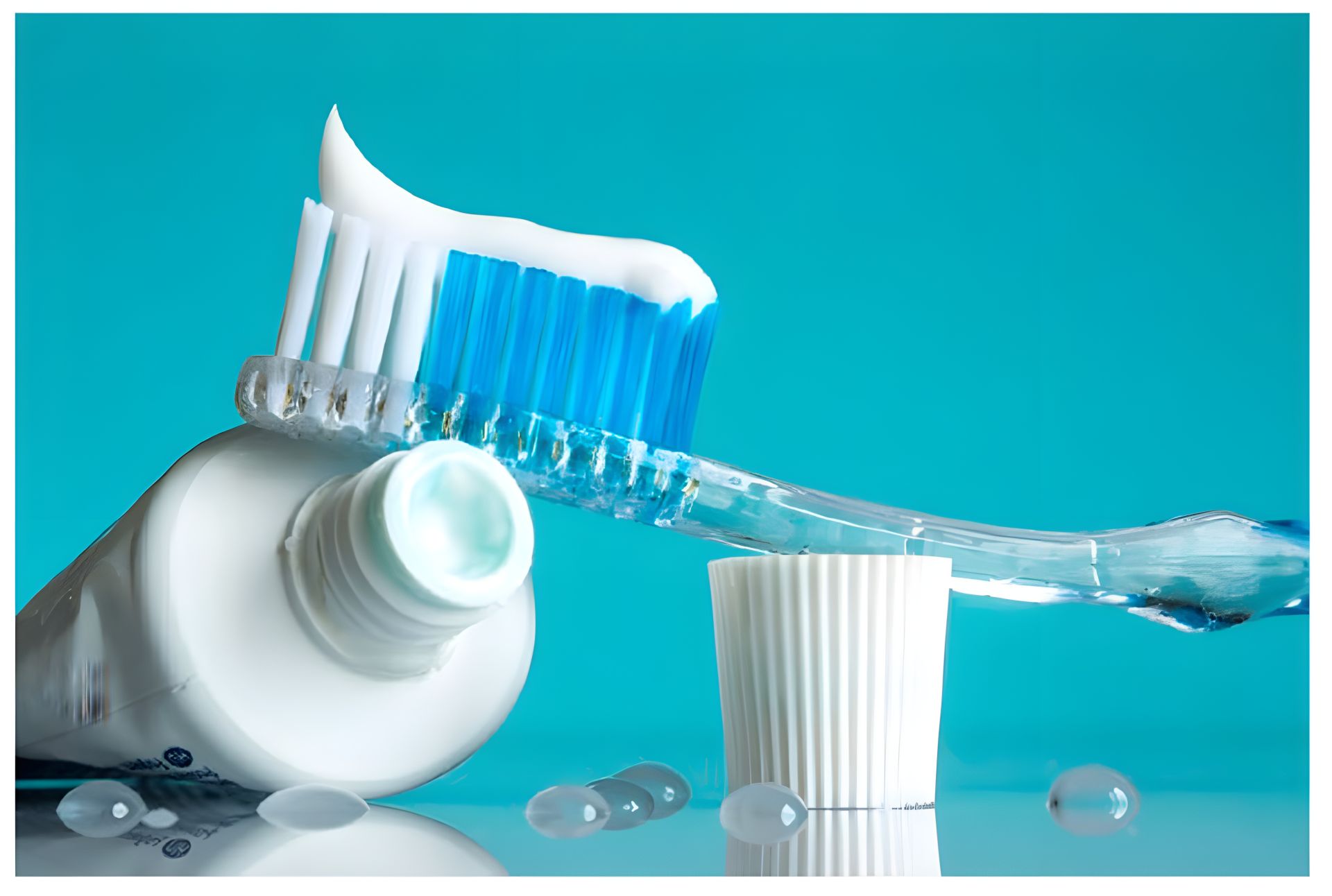 24 Jan 2025
24 Jan 2025
Fluoride and Its Implications in Dentistry: A Comprehensive Overview
Fluoride has long been a topic of discussion in the field of dentistry due to its essential role in promoting oral health. Its use in preventing tooth decay and enhancing overall dental hygiene has been a revolutionary advancement, benefiting millions of people worldwide. This blog will explore fluoride’s significance in dentistry, its benefits, potential concerns, and its broader implications.
What is Fluoride?
Fluoride is a naturally occurring mineral that can be found in soil, water, and various foods. In dentistry, fluoride is primarily used in topical forms—such as toothpaste, mouth rinses, and professional treatments administered by dental providers—to help prevent cavities and promote healthy teeth.
The Role of Fluoride in Preventing Tooth Decay
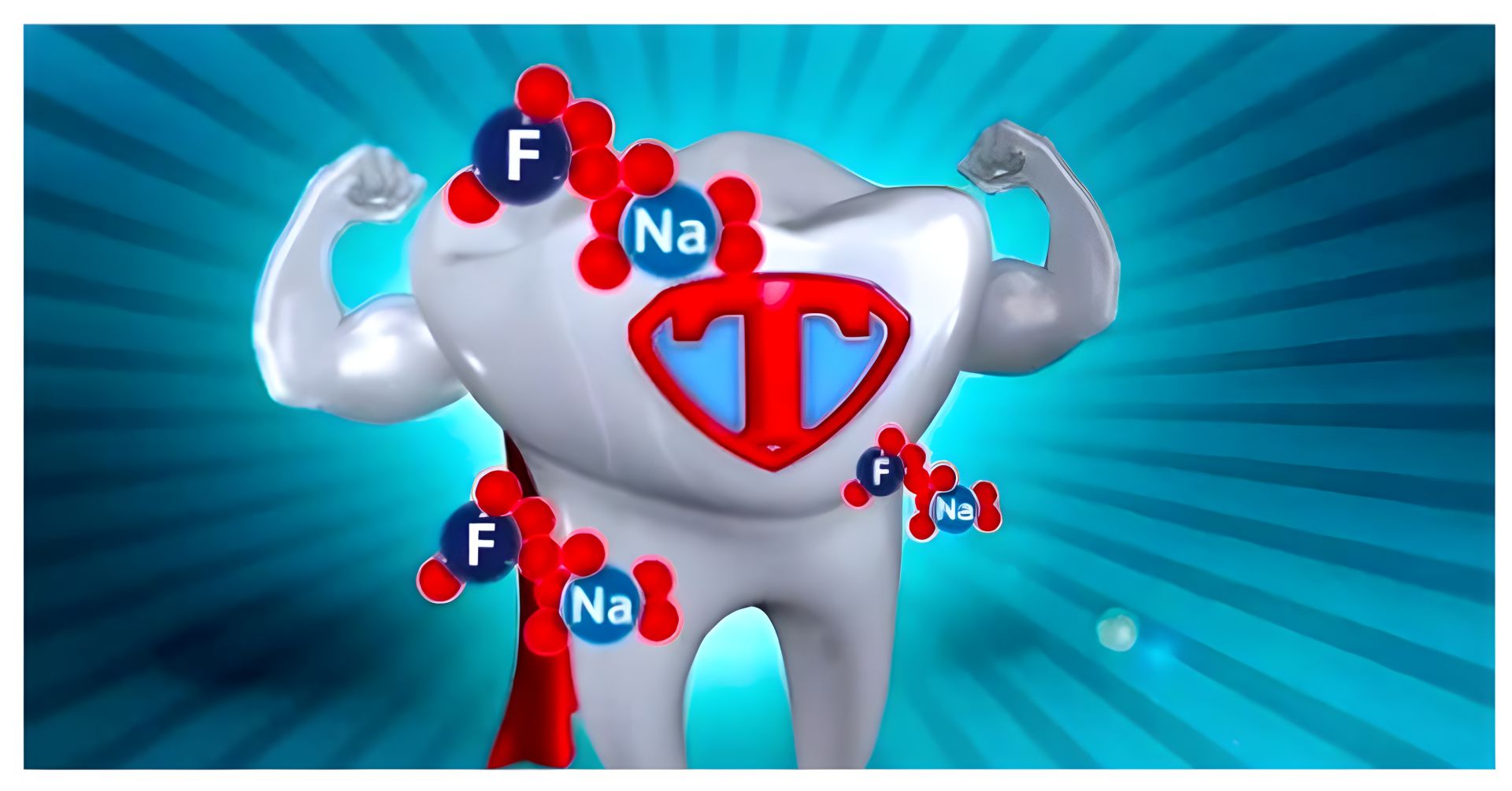
Tooth decay, or dental caries, is one of the most common chronic diseases worldwide. It occurs when acids produced by bacteria in the mouth erode the tooth enamel, leading to cavities. Fluoride plays a crucial role in the prevention of tooth decay by:
-
1. Remineralising Enamel: Fluoride helps to remineralise the tooth enamel that has been demineralised by acids. This process restores essential minerals like calcium and phosphate to the enamel, making it stronger and more resistant to future decay.
2. Inhibiting Bacterial Growth: Fluoride inhibits the growth of harmful bacteria in the mouth, reducing the amount of acid produced by these bacteria after they feed on sugars and carbohydrates.
3. Reducing Cavities: Numerous studies have demonstrated that fluoride use reduces the incidence of cavities. This is particularly evident in populations that receive fluoridated drinking water, which has contributed to a significant decline in dental decay over the years.
Fluoride Treatments in Dentistry
Fluoride treatments in dentistry are designed to deliver higher concentrations of fluoride to the teeth, offering enhanced protection against cavities and promoting better oral health. There are several types of fluoride treatments commonly used by dental professionals:
-
1. Topical Fluoride Treatments
These treatments are applied directly to the teeth and are the most common form of fluoride use in dentistry. They include:
– Fluoride Varnishes: This is one of the most popular methods of fluoride treatment used by dentists. Fluoride varnishes are applied to the surface of the teeth during routine check-ups. The varnish hardens quickly, allowing it to remain on the teeth longer than other forms of fluoride, providing more time for the fluoride to remineralise enamel. This treatment is especially effective in children and individuals at higher risk for cavities.
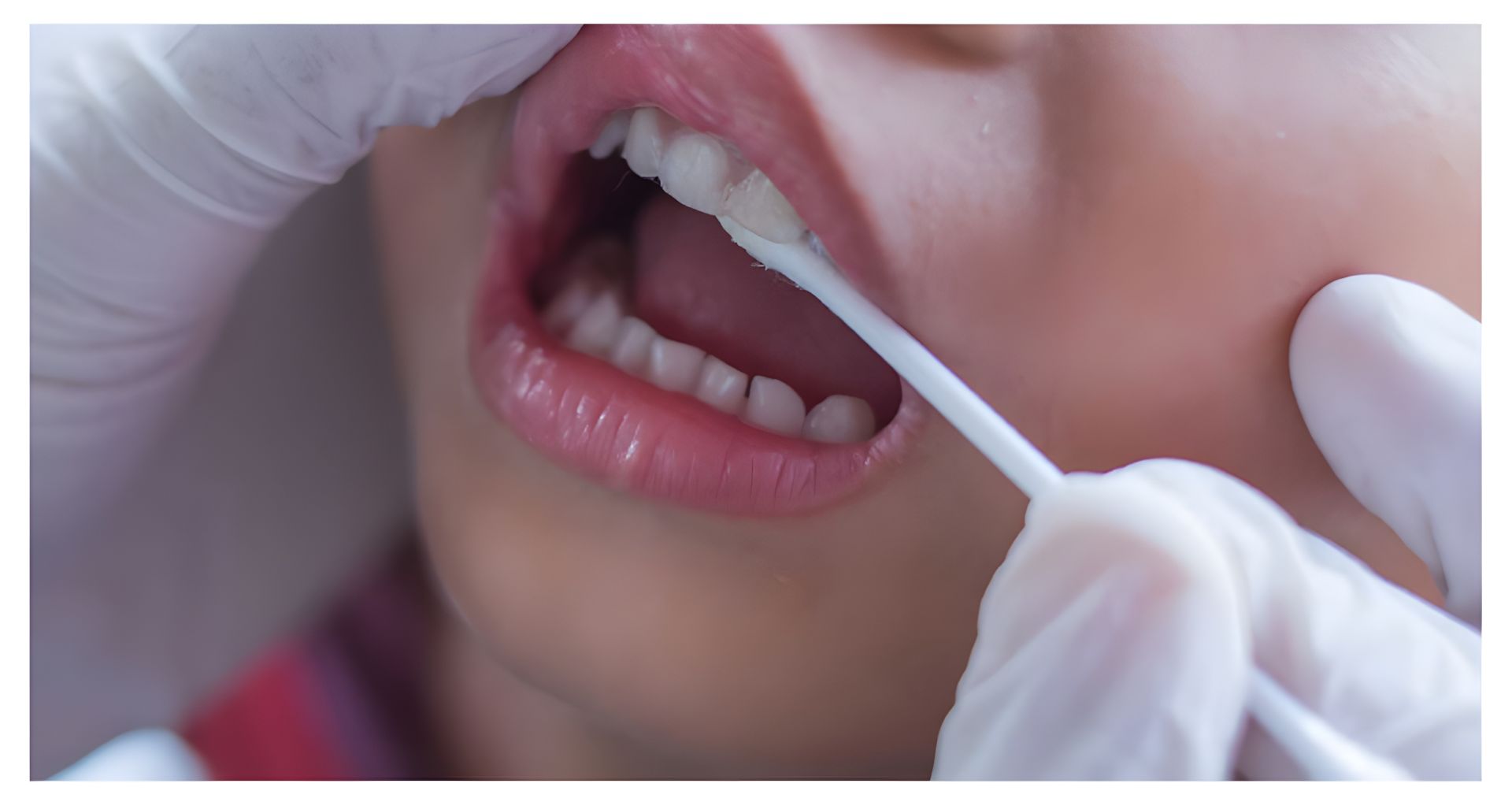
– Fluoride Gels and Foams: Fluoride gels or foams are applied to the teeth using a tray that fits over the teeth for a few minutes. These treatments are more commonly used for children and people with special needs who may benefit from a higher fluoride concentration. These treatments are highly effective in reducing cavities, especially in areas with limited fluoride exposure from water sources.
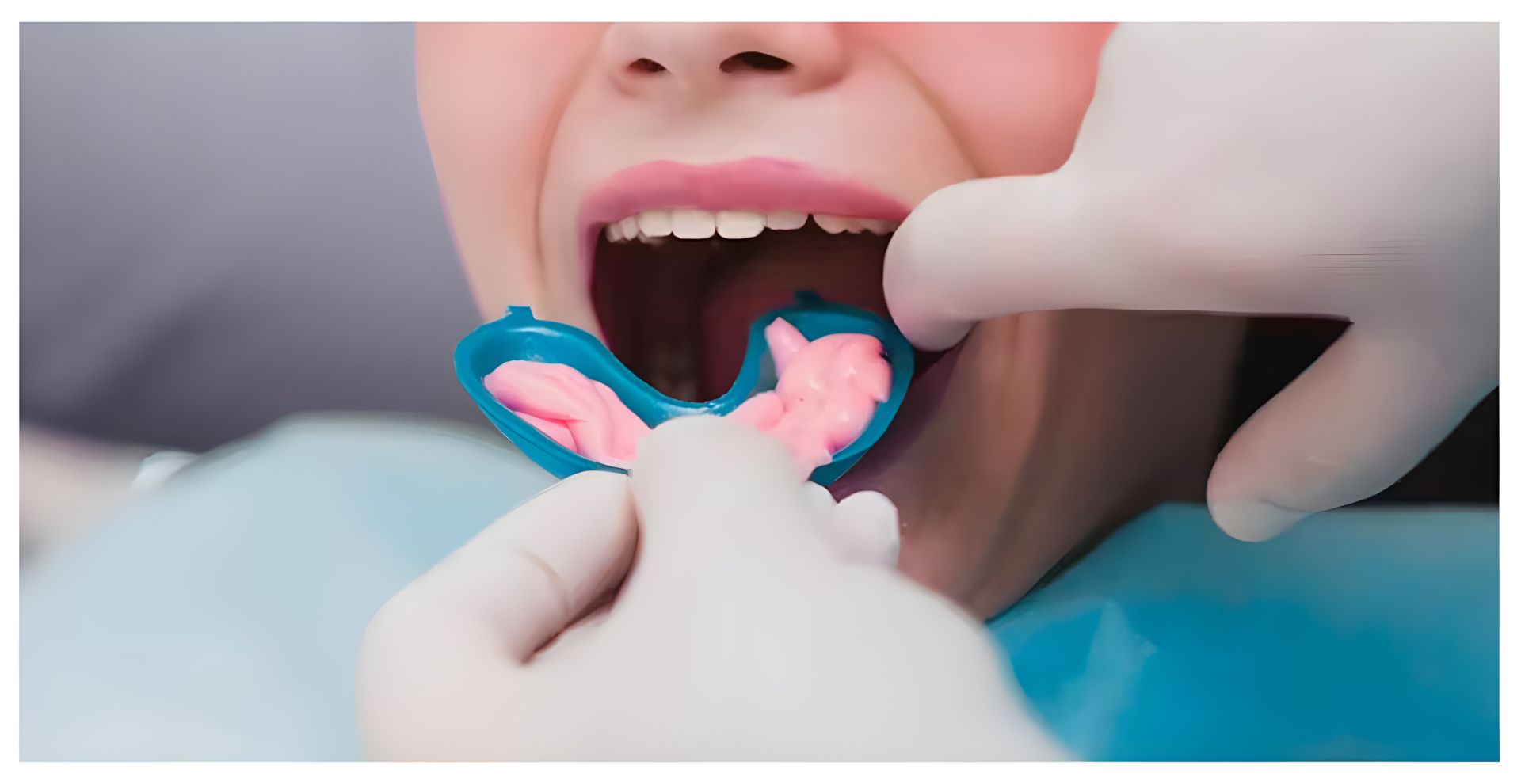
-
2. Fluoride Rinses
Fluoride mouth rinses are an easy and effective way to deliver fluoride to the teeth. These are typically available over-the-counter in lower concentrations or by prescription for higher-strength formulas. Rinses are recommended for individuals who may be at higher risk for cavities, including those with dry mouth, braces, or a history of frequent tooth decay. Daily use of fluoride rinses can further help protect against plaque buildup and tooth sensitivity.
-
3. Fluoride Toothpaste
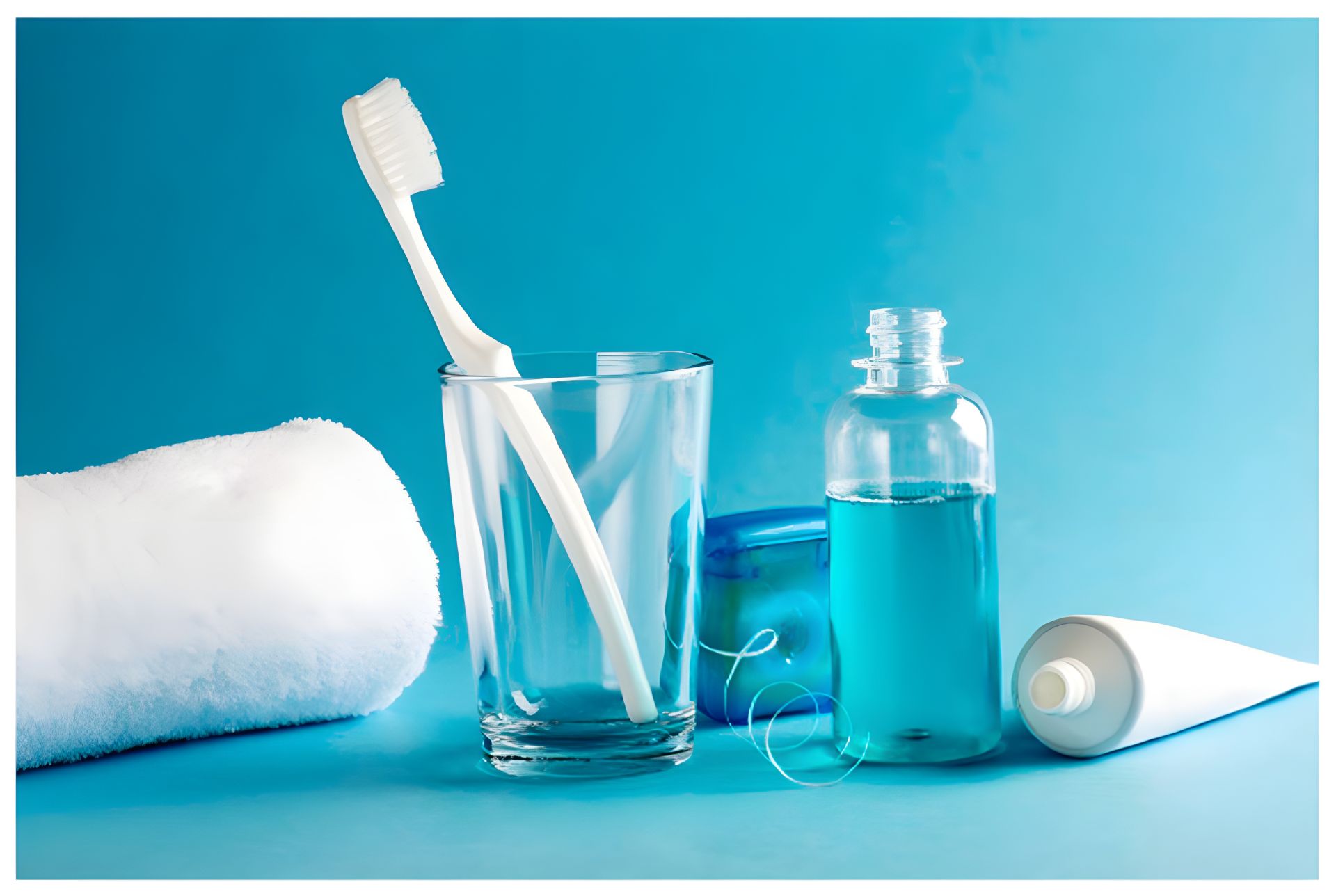
While not a professional treatment, fluoride toothpaste is one of the most accessible ways for individuals to maintain fluoride exposure on a daily basis. The fluoride in toothpaste helps reduce plaque, strengthen tooth enamel, and prevent cavities. It’s recommended that people use fluoride toothpaste twice daily to maintain optimal oral health.
Benefits of Fluoride in Dentistry
The benefits of fluoride in dentistry are well-documented and include:
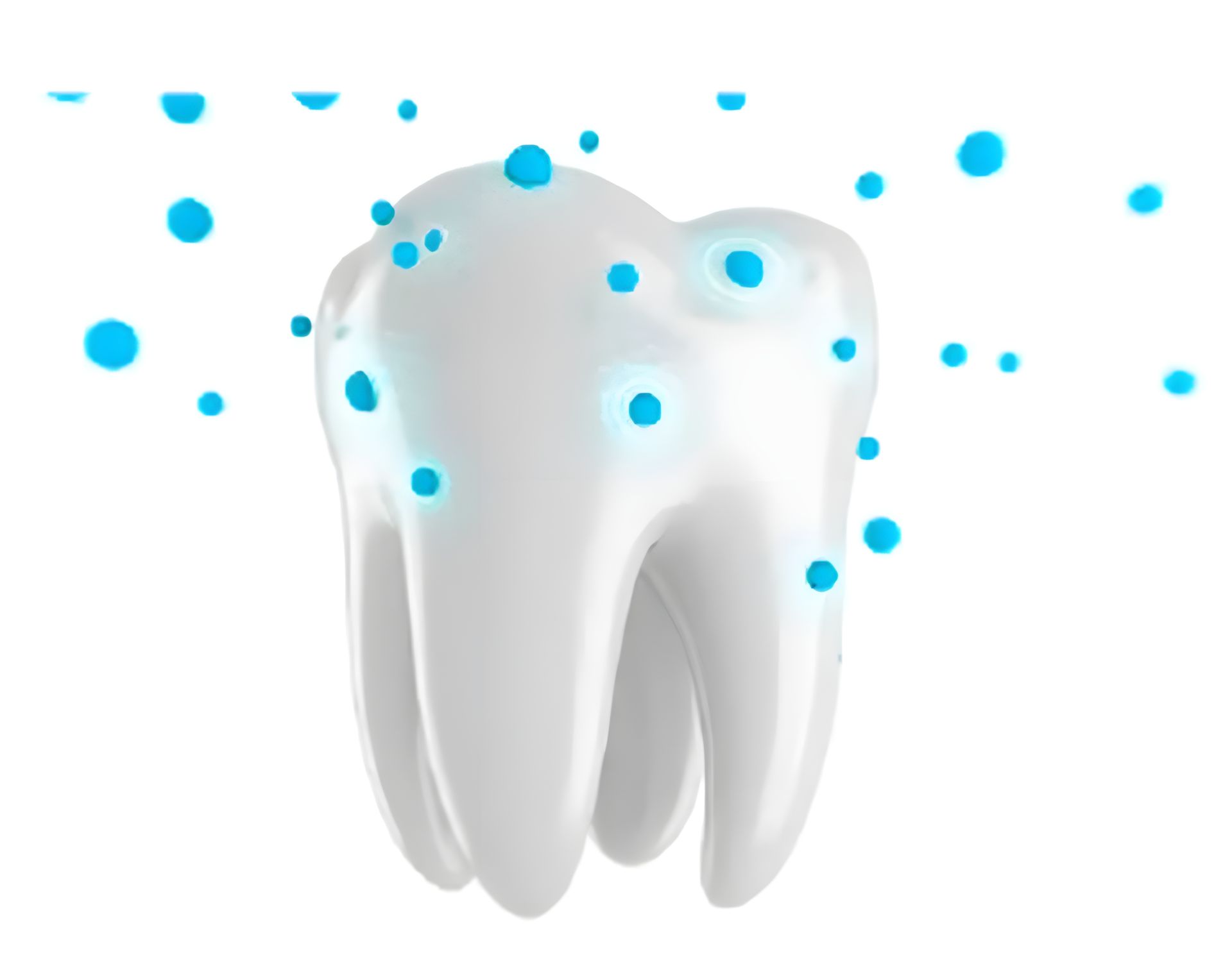
-
– Cavity Prevention: Fluoride is most renowned for its ability to reduce the risk of cavities. It helps strengthen tooth enamel and makes it more resistant to acids and plaque buildup, reducing the overall prevalence of dental decay.
– Cost-Effective: Fluoridated water and fluoride treatments are cost-effective ways to combat tooth decay. Preventing cavities with fluoride can significantly reduce the need for costly dental procedures, saving individuals and healthcare systems money in the long run.
– Improved Oral Health for All Ages: Fluoride benefits people of all ages, from children who are still developing their teeth to adults and seniors. Fluoride’s protective effects help prevent cavities and tooth sensitivity across the lifespan.
– Reduction of Disparities in Oral Health: Fluoridation in community water supplies can help reduce oral health disparities in underserved populations, providing equitable access to cavity prevention, particularly in areas where access to dental care may be limited.
Potential Concerns and Risks of Fluoride
While fluoride has many proven benefits, there are also some concerns regarding its use, particularly in excessive amounts. These risks are rare but worth noting:
1. Dental Fluorosis: One of the primary concerns of fluoride overuse in children is dental fluorosis, a cosmetic condition that results in white spots or streaks on the teeth. This condition typically occurs when young children swallow toothpaste or mouth rinse that contains fluoride. In severe cases, fluorosis can lead to pitting or staining of the teeth.
2. Skeletal Fluorosis: Excessive exposure to fluoride over a long period can lead to skeletal fluorosis, a condition that affects bones and joints. This is extremely rare in areas where fluoride levels in water are within safe limits.
3. Debates Over Fluoridation: Some people have raised concerns about the potential health risks of water fluoridation, citing studies that suggest links to conditions such as thyroid problems, cancer, and developmental issues. However, the overwhelming consensus from public health organisations, including the Centres for Disease Control and Prevention (CDC) and the World Health Organisation (WHO), is that fluoridated water is safe at recommended levels.
The Future of Fluoride in Dentistry
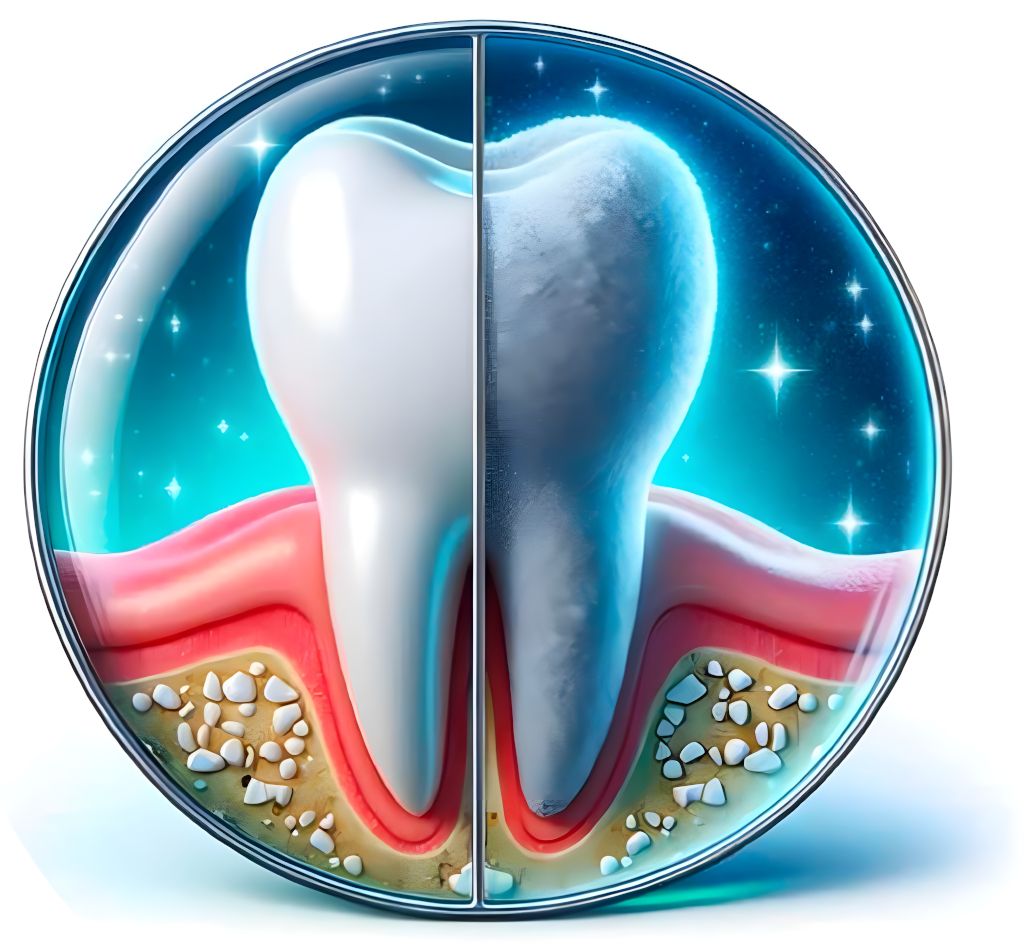
As research continues, new fluoride delivery methods and treatments are being developed to further enhance its benefits. Innovations in fluoride varnishes, more effective fluoride-releasing dental materials, and personalised treatments are helping dentists provide better care for their patients.
Additionally, as the conversation about fluoridation continues, communities and policymakers must weigh the benefits of fluoride in public water supplies with public concerns, ensuring that fluoride levels remain safe and effective.
Conclusion
Fluoride has proven to be a cornerstone in modern dentistry, providing significant protection against tooth decay and promoting overall oral health. From its role in remineralising enamel to its widespread use in community water fluoridation, fluoride continues to be a powerful tool in the fight against dental caries. While it is essential to be mindful of the risks associated with excessive fluoride use, when applied appropriately, fluoride offers a safe and effective way to preserve and improve dental health for individuals of all ages.
As more advancements in fluoride technology emerge, it’s likely that its role in oral health will continue to evolve, further cementing its place as one of the most beneficial and accessible dental treatments available.
 18 Nov 2024
18 Nov 2024
Understanding Temporomandibular Disorder (TMD)
Temporomandibular (TMD) refers to a range of conditions affecting the temporomandibular joint (TMJ), which connects the jawbone to the skull. This joint plays a crucial role in biting, chewing, and speaking. TMD can lead to pain and dysfunction, making everyday tasks challenging. In this blog post, we will explore the causes, symptoms, diagnosis, and treatment options for TMD.
What is TMD?
TMD encompasses various disorders affecting the jaw, muscles, and surrounding structures. It can result from a combination of factors, including jaw injuries, arthritis, or excessive grinding and clenching of teeth (bruxism).
Common Causes of TMD:
- Jaw Injuries: Trauma from sports, accidents, or falls can lead to TMD.
- Bruxism: Grinding or clenching teeth, often due to stress, can strain the jaw.
- Arthritis: Conditions like osteoarthritis and rheumatoid arthritis can affect the TMJ.
- Misalignment: Issues with bite alignment (malocclusion) can contribute to TMD.
Symptoms of TMD
Symptoms of TMD can vary widely but often include:
- Jaw Pain: Pain in the jaw joint or surrounding muscles, which may worsen with movement.
- Headaches: Frequent headaches or migraines related to muscle tension in the jaw.
- Clicking Sounds: A clicking or popping noise when opening or closing the mouth.
- Limited Jaw Movement: Difficulty opening the mouth fully or discomfort while chewing.
- Ear Pain: Discomfort, ringing, or a feeling of fullness in the ears.
Diagnosis of TMD
Diagnosing TMD typically involves:
- Medical History: Discussing symptoms, medical history, and any relevant dental issues.
- Physical Examination: Assessing jaw movement and tenderness in the jaw and surrounding muscles.
- Imaging Tests: X-rays, MRI, or CT scans may be utilized to visualize bone structure and joint condition.
Treatment Options
Treatment for TMD aims to relieve pain, improve function, and reduce inflammation. Options may include:
- Medication – these are used for relieving the tmj symptoms
• Muscle relaxants – helpful in cases of bruxism
• Pain relievers like acetaminophen
• NSAIDS like ibuprofen and naproxen - Nonsurgical TMJ treatments
• Mouth guards – helps in reduce the effects of grinding and clenching. It is best to get a customised mouth guard from a dentist.
• Physical therapy – includes TMJ exercises for stretching jaw and strengthening muscles around it.
• Trigger point injections – includes injecting corticosteroids or botulinum toxin into painful muscle knots.
• Ultrasound therapy – sound waves are used to deliver heat deep into the tissues. Increases blood flow and promotes muscle relaxation.
• Trans cutaneous electrical nerve stimulation – low level electrical currents are used to relax jaw muscles. - Surgical TMJ treatments
• Anthrocentesis – a diagnostic procedure
• TMJ arthroscopy
• Open joint surgery
Conclusion
Temporo mandibular Disorder can significantly impact your quality of life, but early diagnosis and comprehensive treatment can lead to effective management. If you experience jaw pain or other symptoms mentioned in this blog, consult with a healthcare professional for proper evaluation and guidance.
By understanding TMD and its implications, you can take proactive steps to manage your health and regain comfort in daily activities.
 07 Oct 2024
07 Oct 2024
Tooth replacement options for elderly patients
Tooth replacement
As we age, many people believe that losing teeth is simply part of the process. While tooth loss can occur due to factors like decay, gum disease, or fractures, it’s often linked to neglect rather than age itself.
At our DENTAL LIFELINE CLINIC, we’ve seen numerous patients maintain healthy teeth well into their 80s. It’s a common misconception that aging inevitably leads to tooth loss.
However, for those who do experience multiple missing teeth, the consequences can be significant. Loss of teeth impacts chewing efficiency, making meals less enjoyable and leading to habits like swallowing larger food chunks. This can increase the risk of choking and contribute to poor nutrition.

Moreover, tooth loss often triggers bone resorption, which can result in diminished facial support, sagging skin, and for some, a decline in self-esteem. It’s essential to prioritize dental health at any age to maintain both function and confidence.
Exploring Tooth Replacement Options for Seniors
Many older adults live without teeth, mistakenly believing it’s an inevitable part of aging. At DENTAL LIFELINE CLINIC, we want to dispel this myth and highlight the various options available to help seniors enjoy their retirement years fully.
Tooth Replacement Options
Tooth replacement solutions can generally be categorized into removable and fixed options:
1. Removable Options
– Dentures (available in acrylic, cobalt chrome, and flexible materials)
2. Fixed Option
– Bridges (Fixed Partial Dentures)
– Dental Implants
When we consults for replacement options for missing teeth at our DENTAL LIFELINE tricity best CLINIC , the patient is presented with ALL options available to him/her, with the pros and cons properly explained. We also discuss costs and treatment timelines, enabling patients to make informed decisions about their care. This process is collaborative, allowing patients to actively participate in their treatment choices.
Removable Option: Dentures
Are Dentures Outdated?
Contrary to popular belief, dentures are not relics of the past. When crafted correctly, they can significantly enhance functionality.
Acrylic Dentures
Acrylic dentures are fully plastic and tend to be slightly thicker for added strength. Their main advantages include:
– Repairable: They can be easily repaired if damaged.
– Temporary Use: They serve as effective temporary dentures during gum treatments or when further tooth extractions are anticipated, ensuring the patient is never without teeth.
When considering denture options, it’s essential to weigh the benefits and limitations of each type to find the best fit for your specific needs.
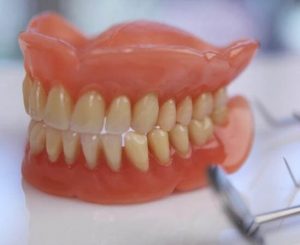
Exploring Fixed Tooth Replacement Options: Bridges and Implants
1. Dental Bridge (Fixed Partial Denture)
A dental bridge is a permanent solution that utilizes neighboring teeth for support. It’s securely bonded in place, but proper cleaning is essential to maintain the health of the adjacent teeth (abutments) and reduce the risk of decay and gum disease.
- Advantages:
– Quick Treatment:Only two visits are needed to complete the procedure, and most patients find it comfortable.
Disadvantages:
– Invasiveness: The process involves reshaping the neighboring teeth to accommodate crowns that anchor the bridge, which connects to the missing tooth or teeth (known as pontics).
– Stability Limitations: Bridges are typically stable for up to 2-3 pontics, and the health of the adjacent teeth is crucial. A wider span can compromise stability, much like a bridge that becomes too flexible when stretched too far.
Bridges can be constructed from various materials, including full ceramic, porcelain, or metal. Discussing these options with your dentist will help determine the best choice for your needs.

2. Dental Implants
Dental implants offer another fixed option, anchoring directly into the jawbone using a titanium post. This approach is often seen as the ideal replacement for a missing tooth, as it mimics the natural root structure.
Process:
– The titanium fixture replaces the missing root, and a crown (made from titanium, gold, or ceramic) is placed on top, restoring the tooth above the gum line.

Conclusion:
Every individual has unique dental needs, and the best way to determine the most suitable options for your loved ones is to consult a professional dentist. Living with missing teeth is not a necessity for the elderly; there are effective solutions available to help maintain their quality of life.
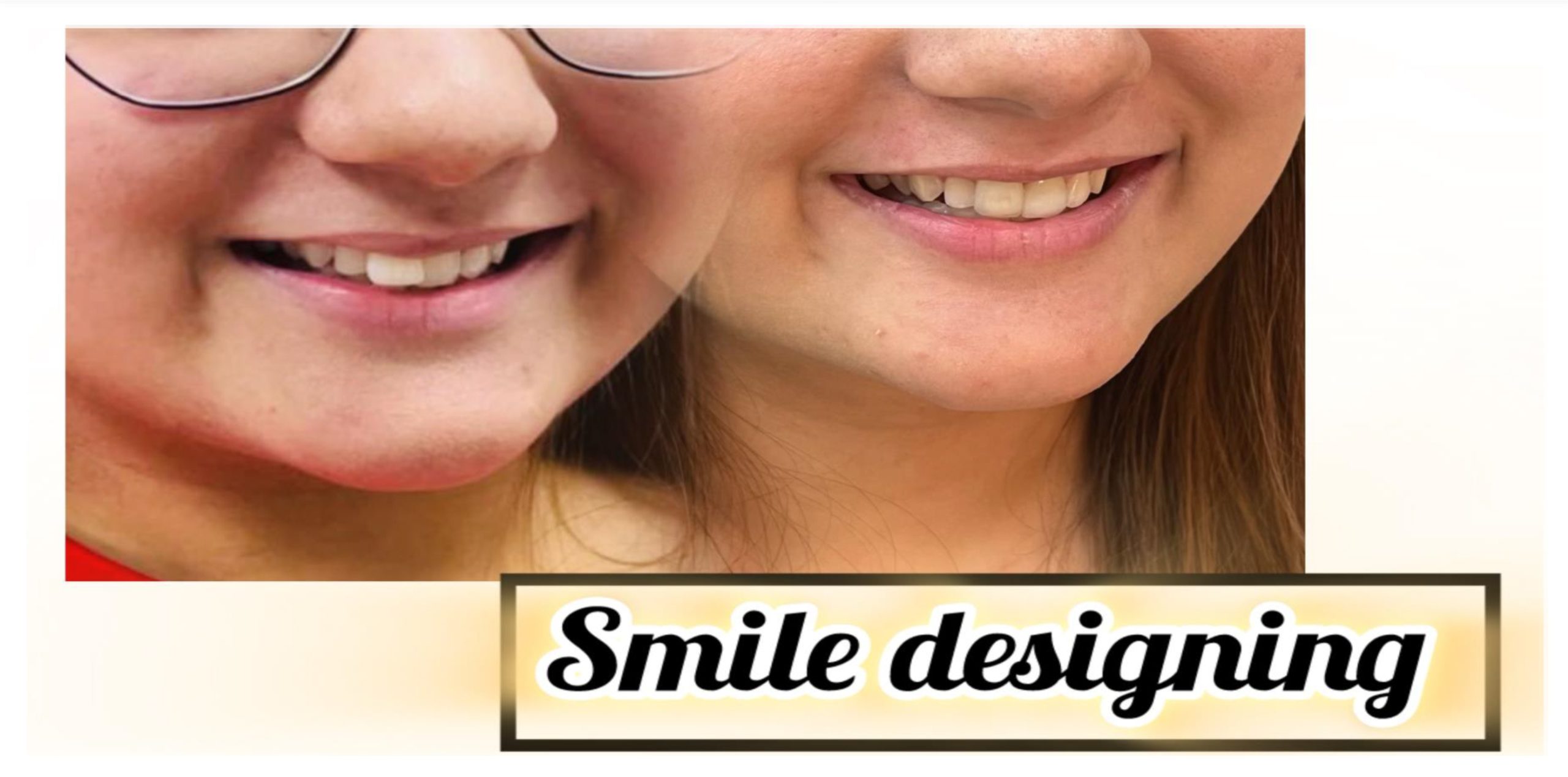 23 Jul 2024
23 Jul 2024
Smile Designing
Smiles, they say, define beauty and can make an average-looking person look attractive. It indeed is the most beautiful curve in the world. A perfect smile designing treatment helps you to leave the best impression wherever you go.
Smile designing in dentistry aims at creating natural-looking smiles. A well-trained professional will look at the hard or soft tissues of your mouth. Then he will suggest a couple of adjustments that can provide tremendous aesthetic improvements.
What result will you achieve with smile designing?
With a proper treatment, you can see your smile transform before your eyes. Smile designing treatment involves various benefits.
- You can get high satisfaction with your new smile.
- The multidisciplinary approach preserves your health and hygiene.
- You can get truly customised results.
- The whole process of this treatment enhances your self-confidence.
- It gives you a greater control over the outcome of your cosmetic treatment.
- The treatment ensures better oral health.
What steps are involved in smile designing to achieve Hollywood smile?
At DENTAL LIFELINE best dental clinic in Chandigarh, we suggest proper treatment for shaping, sculpting, and making your smile more enhanced. A cosmetic treatment plan is made which consists of several restorative methods it includes:
Tooth coloured fillings
At DENTAL LIFELINE, the most trusted clinic, we use natural-coloured materials to fill up the space caused by cavities. The materials good for filling space are resins, lab-made porcelain inlays, and outlays.
Tooth whitening
Our teeth can get stained because of drinking coffee, alcohol or smoking. Our experts will do teeth whitening in two ways: either in office using chemical treatments or through laser treatment. The process will restore the colour of your teeth and make them shine.
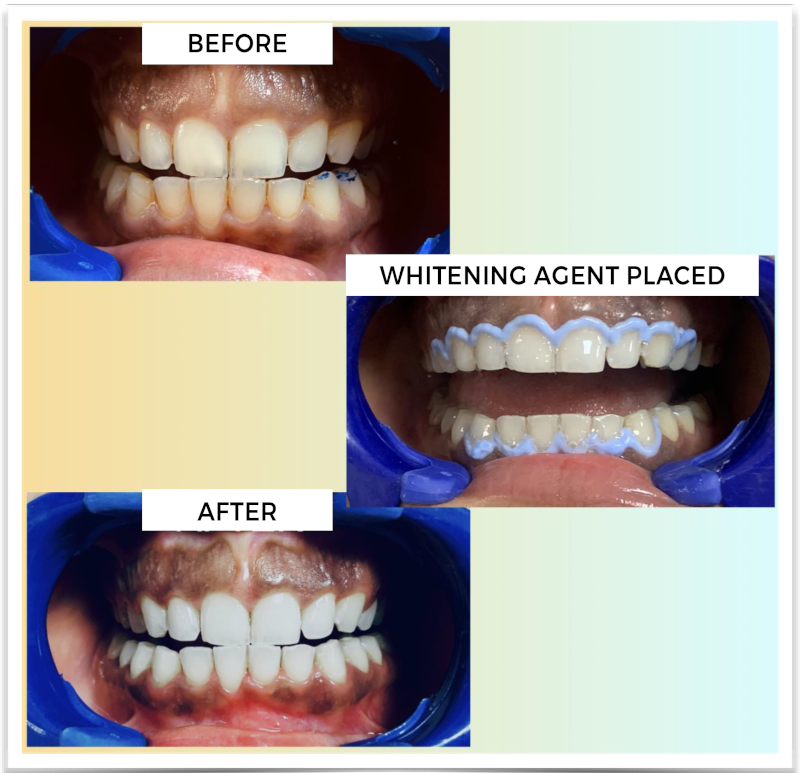
Braces
This method is good to fix crowded and crooked teeth. Braces are safe to use and are long-lasting. Your teeth will see a difference in appearance, before and after the braces.
INVISALIGN TREATMENT is an advanced orthodontic option that can help improve your smile without compromising comfort or convenience. With this modern solution, you can straighten your teeth quickly and easily while improving your confidence and comfort.
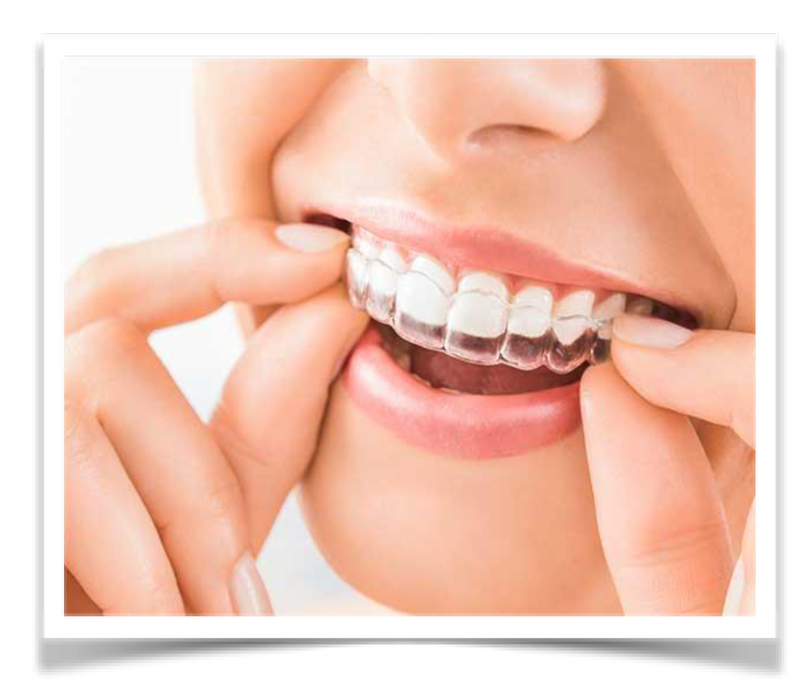 Invisalign is able to fix crooked teeth, crowded teeth, overlapping teeth, or teeth with gaps between them. Additionally, Invisalign can be used to correct overbites, underbites, cross-bites, and open bites.
Invisalign is able to fix crooked teeth, crowded teeth, overlapping teeth, or teeth with gaps between them. Additionally, Invisalign can be used to correct overbites, underbites, cross-bites, and open bites.
Veneers
Dental veneers are thin, custom-made shells that dentists at our most advanced clinic place on the front of the teeth to improve the appearance of discoloured maligned teeth. Veneers can hide stained, chipped, and uneven teeth and offer permanent solution.
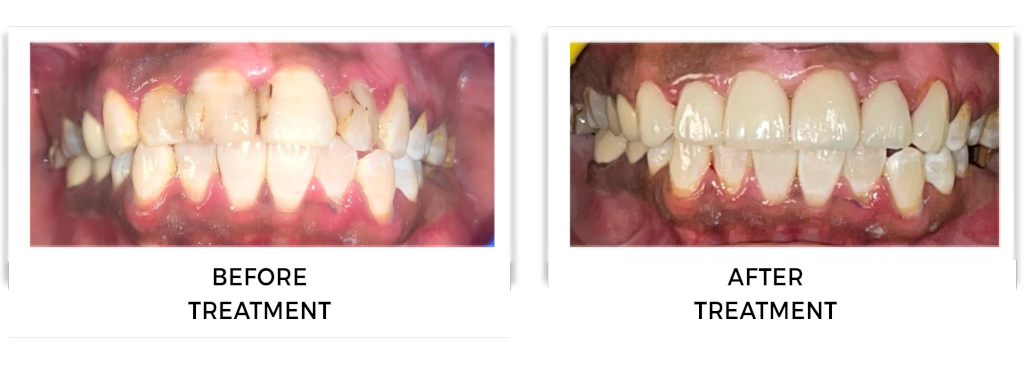
Crowns
Crowns are a good option when your tooth requires more dramatic change. It is useful when teeth appear a bit crowded, uneven, or too long. At DENTAL LIFELINE, we use most advanced technology to make impressions with the help of INTRA ORAL SCANNER. The result obtained is quick and excellent.
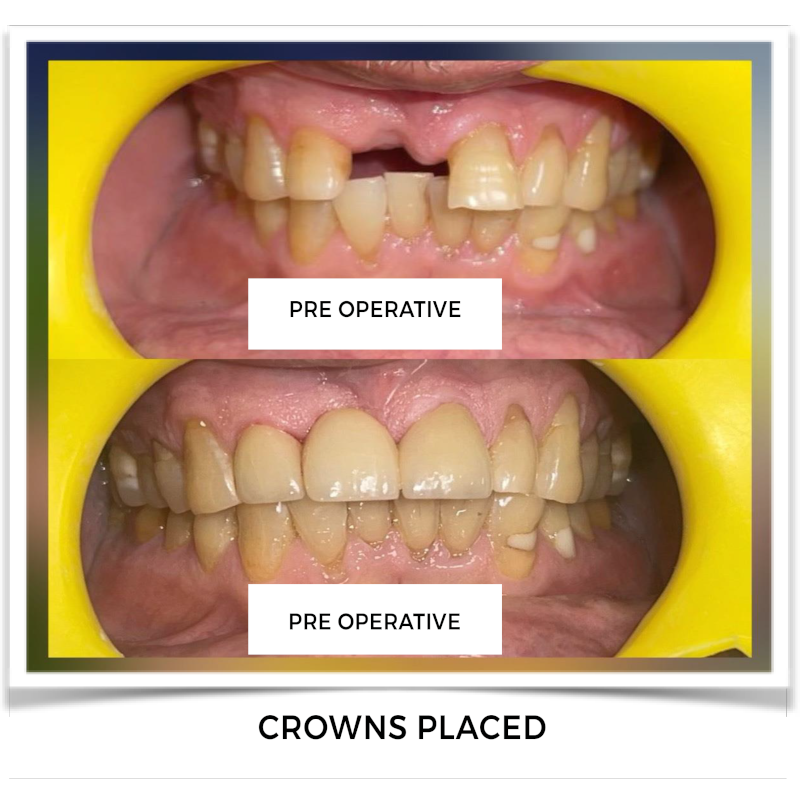
Gum depigmentation
Some people have brown, dark, and black gums. The reason behind the darkness in the gum is the melanin pigmentation. But with the latest technologies, like using dental lasers, epic laser at DENTAL LIFELINE the dark pigmentation can be removed.
Dental Lifeline: Best dental Care Clinic:
We have developed a painless procedure and offer advanced dental care to all the patients.
Our team of dedicated dental care professionals serves you with the best dental solutions. We also provide the best smile makeover treatment that addresses multiple cosmetic and dental imperfections.
You can visit us anytime and get a beautiful and confident smile with our patient-friendly treatments.
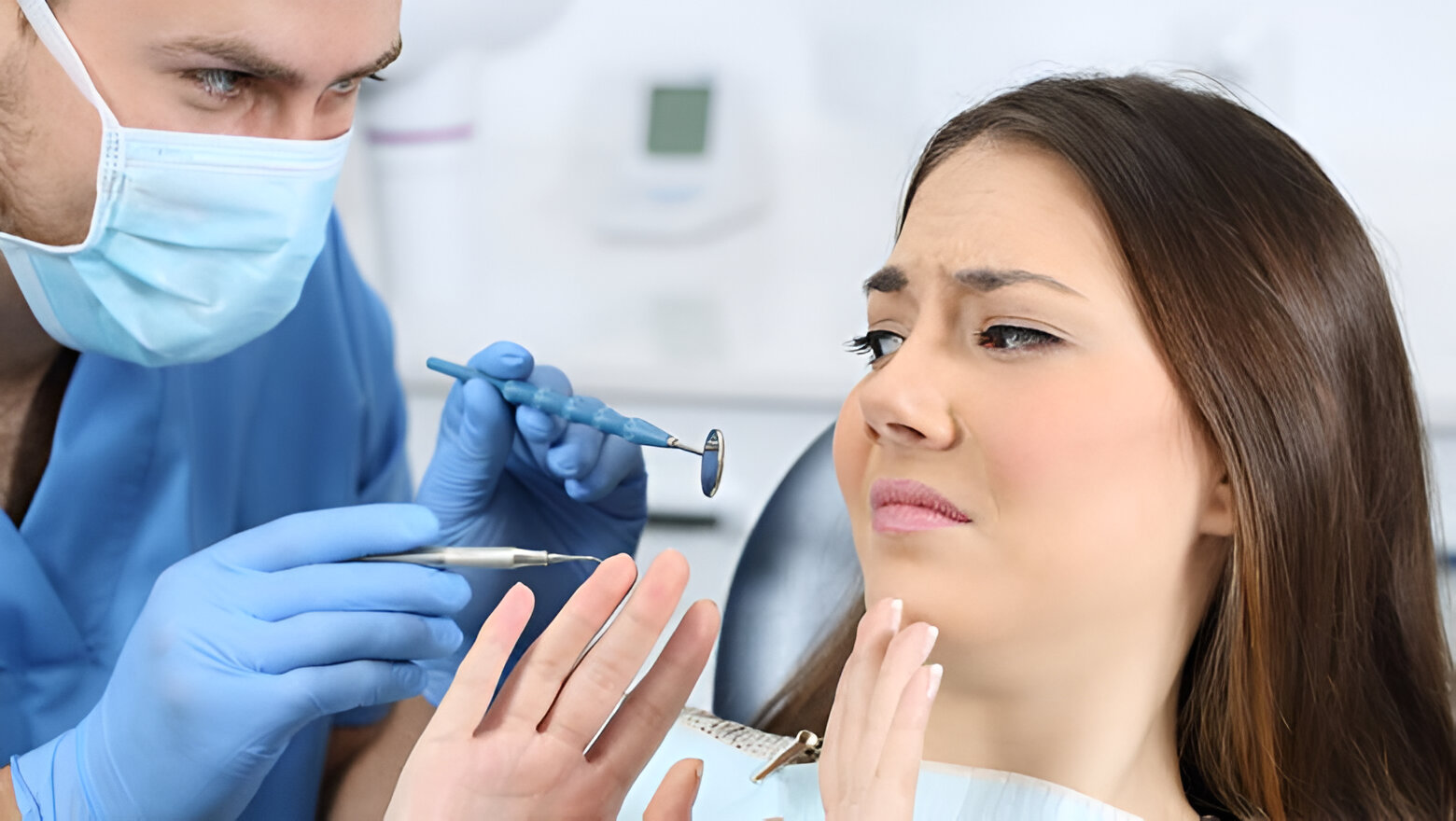 15 May 2024
15 May 2024
TIPS FOR OVERCOMING DENTAL PHOBIA
Dental phobia is a reality for many individuals who suffer from feelings of anxiety at the thought of going to the dentist. While some men and women outright avoid the dentist due to their fears, studies show that a larger percentage of the population only schedules a dental appointment when absolutely necessary.
Regular check-ups are essential to maintaining strong, healthy teeth/gums, as well as preventing potentially serious health conditions linked to poor dental care, such as diabetes, heart disease, and stroke.
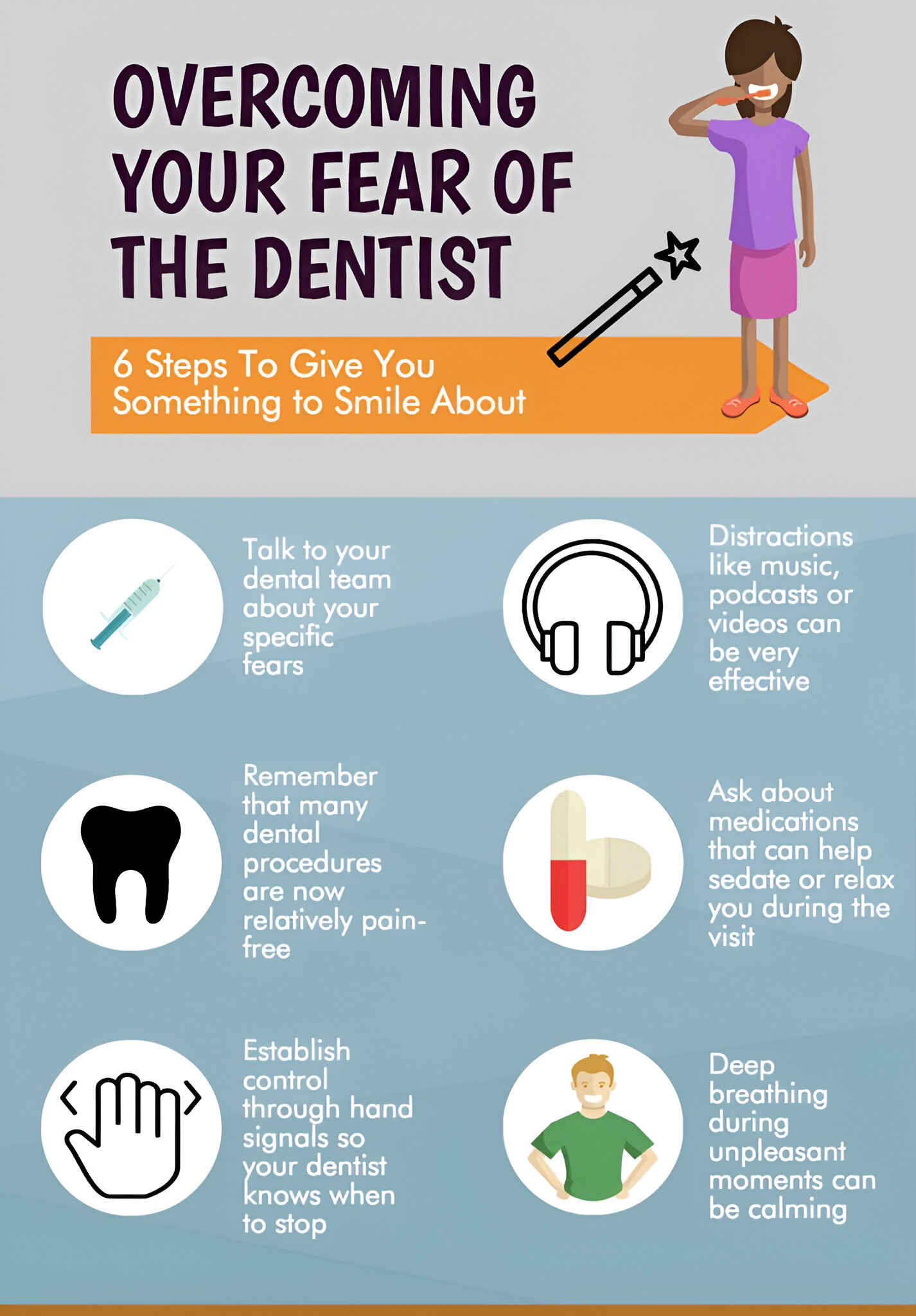
Our dental practice offers several solutions to help alleviate mild to severe dental anxiety; however, natural solutions may also be useful in reducing nervousness before and during your treatment, including:
- Bringing someone you trust to your appointment. Studies show the presence and comfort of a friend/loved one can make anxious patients feel more at ease during their appointment.
- Listening to relaxing music through your headphones during treatment. When played at a quiet volume, your favourite music can provide a distraction from your environment and help you relax.
- Talking to your dentist about your fears. By telling your dentist about your dental phobia, he or she can assist you in coping with treatment by gently guiding you through each stage of treatment, distracting you when necessary, being aware of your pain threshold, and more.
- Practice breathing exercises. Deep breathing exercises and relaxation techniques can help take your mind off treatment and allow you to focus on your breath rather than your fears.
- Inquiring about potential options to make you feel more relaxed. Backed by the ADA, Sedation Dentistry techniques can be tailored to your specific anxiety levels to help you enjoy a more pleasant treatment experience. Many options available allow you to remain conscious, yet deeply relaxed, during your visit.
In any case, the key to overcoming dental anxiety is to find a gentle and caring Dentist who can make you feel at ease during your appointment.
At DENTAL LIFELINE the most trusted clinic of Chandigarh for Dental Care, our compassionate dental team is committed to making your visit as relaxing, pleasant, and comfortable as possible.
Please don’t hesitate to call our office for best treatments in implants and root canals , to learn more about how we can help you get the dental care you seek while accommodating your unique individual needs.
